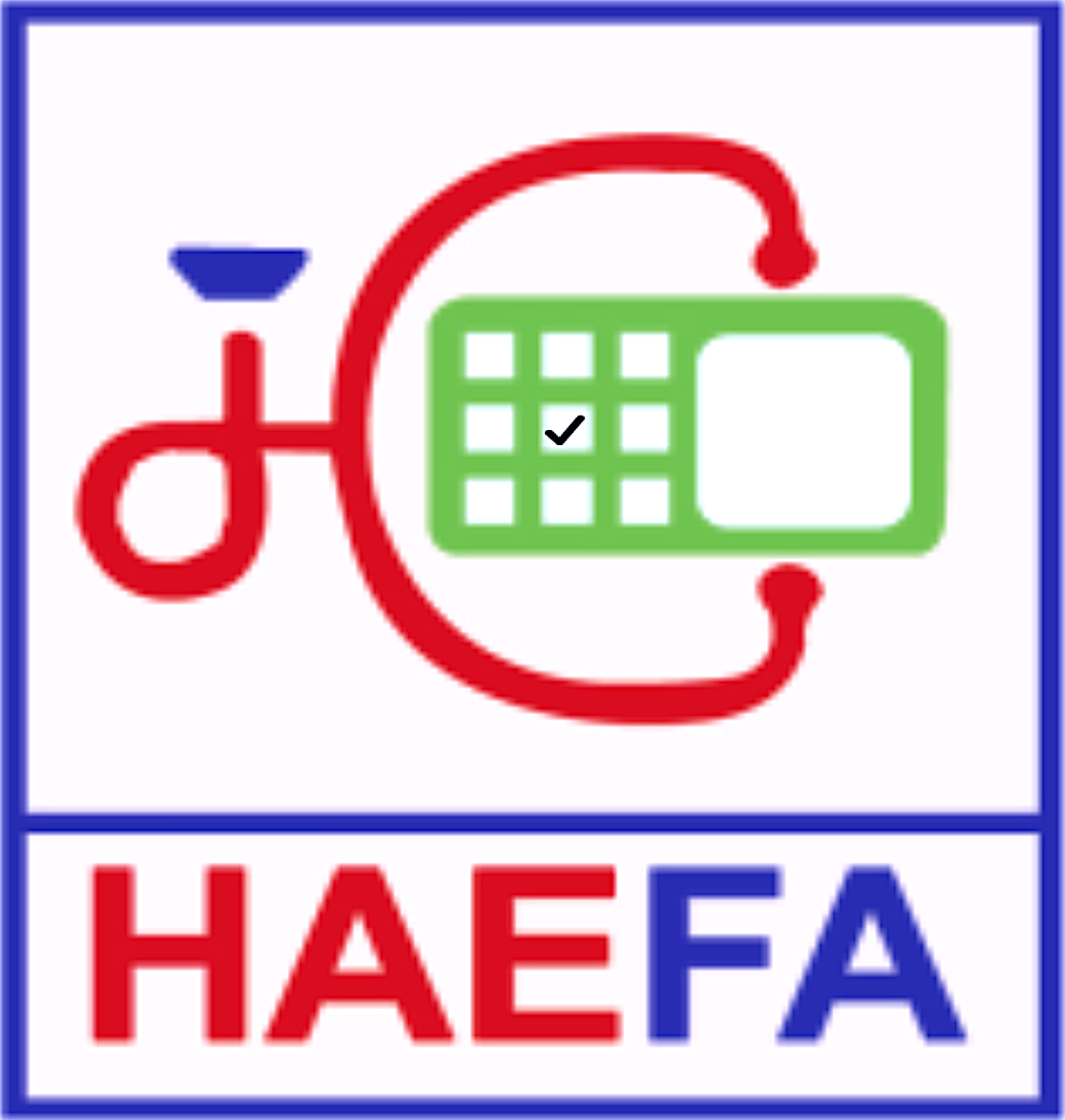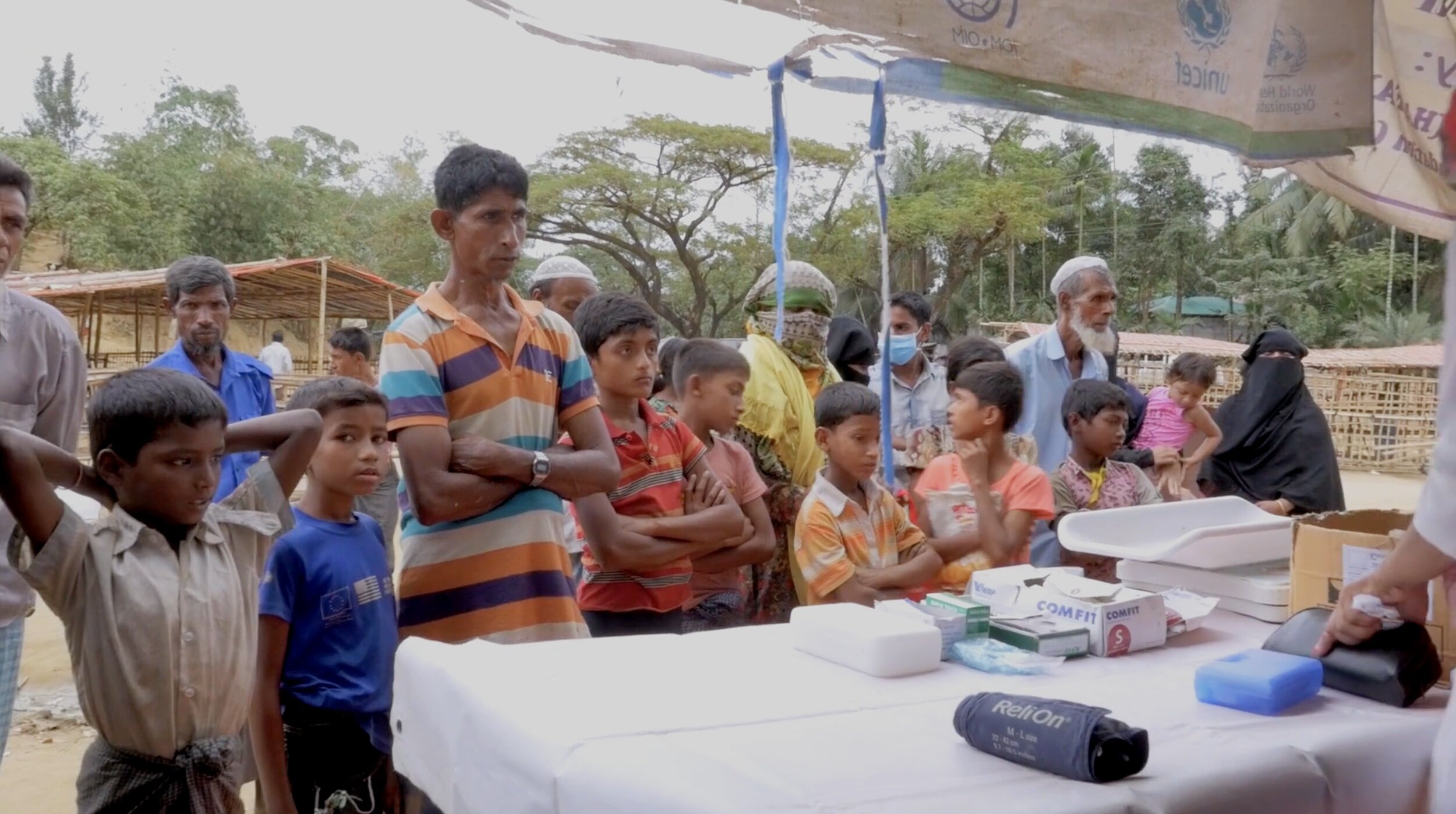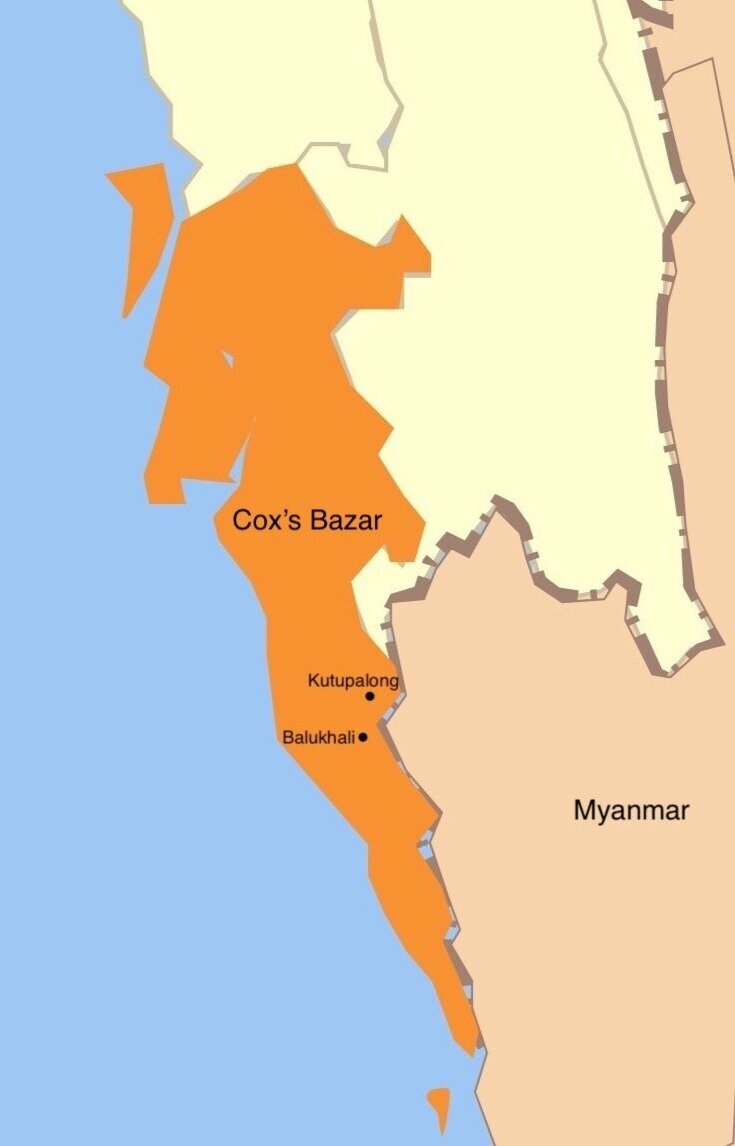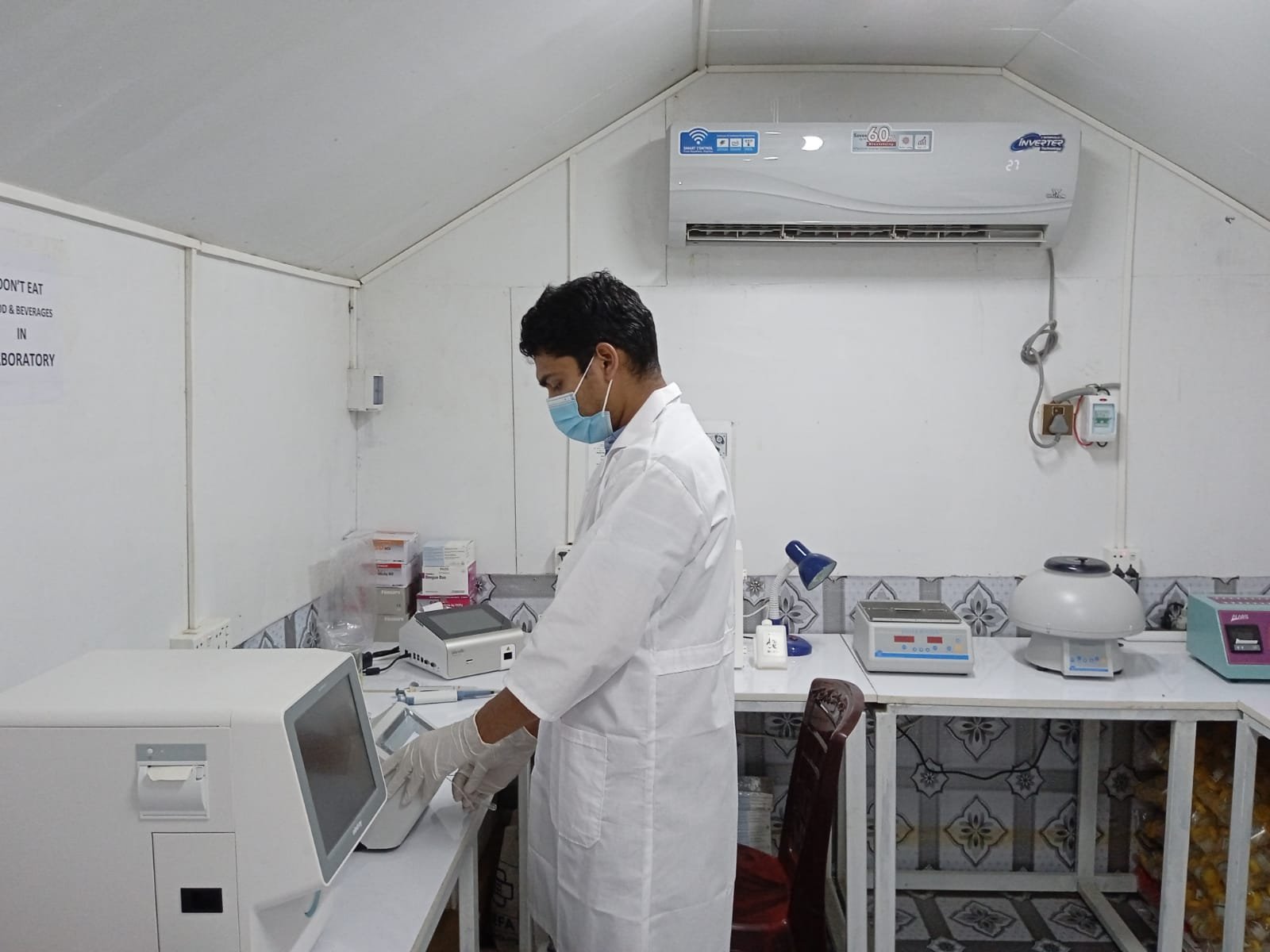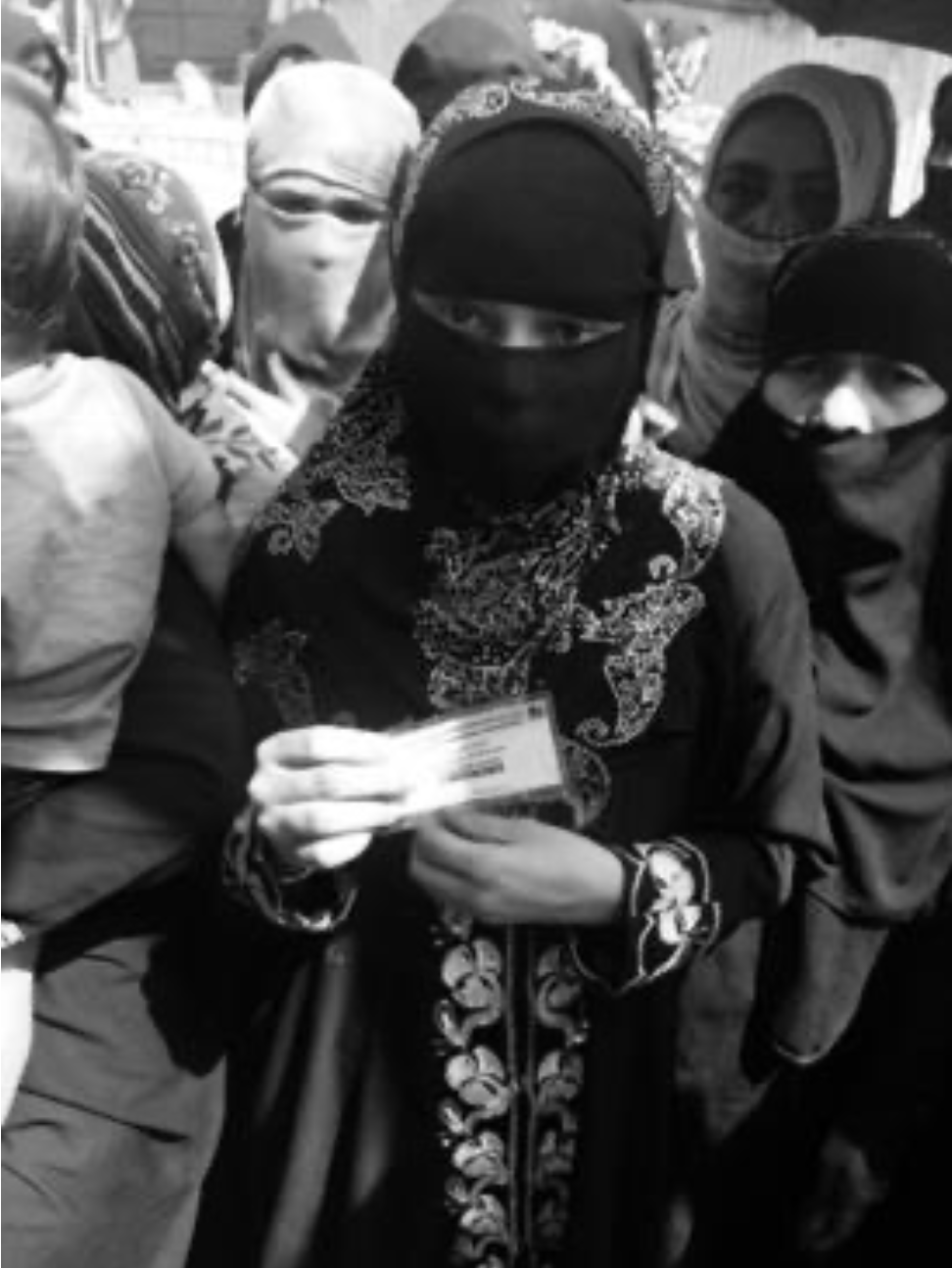Providing free and essential medical services to the Rohingya minority fleeing oppression and persecution in Myanmar
As of October 2017, HAEFA has expanded our target demographic to include Rohingya refugees and Forcibly Displaced Myanmar Nationals (FDMN). The Rohingya have been forced out of their homeland by Myanmar and many have taken refuge in Bangladesh, where HAEFA has set up three medical centers.
In this page you will find:
Our Primary Healthcare Clinics
New Weekly Mobile Medical Clinic
Additional Aspects of HAEFA’s Care
NIROG: an Innovative Health Solution
Treatment Protocol
Raising International Awareness
Research
Latest Updates
272,728 Rohingya refugees/FDMN and host community people received free medical care in Cox's Bazar from January 2017 to April 2023
49,425 Rohingya refugees/FDMN and host community people received free medical care in Bhashan Char, Noakhali since 2020
Since 2022, 4,000+ Bangladeshi nationals in Ukhiya have benefited from HAEFA's Mobile Medical Clinics
We would like to thank the United States for recognizing the
Myanmar persecution of the Rohingya as
GENOCIDE.
Click here to read the full article
The Start
When the mass exodus of Rohingya from Myanmar occurred in August of 2017, HAEFA already had an efficient method for screening and treating a vulnerable population for NCDs and acute and chronic infectious diseases. In the face of the crisis, HAEFA quickly turned its attention to adapting its innovative EMR software system NIROG for efficient use in the refugee camps.
Map of Cox’s Bazar district with the locations of HAEFA’s medical teams in Kutupalong and Balukhali refugee camps
The work began with a donation of $7,000 from a local mosque in Massachusetts, which covered two camps in Kutupalong and Balukhali for about one month. The first health centers were comprised of bamboo tents shared with the government’s health centers. Four doctors, six nurses and paramedics, eight health workers, and two IT assistants made up the first members of the team. This project has gradually grown in size and capacity, now employing 11 medical professionals in each camp as well as IT personnel, midwives, and even a night guard.
The two camps together treat 250-300 patients a day six days a week, adding up to between 6,000 and 7,000 patients per month. In addition to treating the Rohingya patients, HAEFA also treats Bangladeshi people from the host communities as they are also an underserved population with little access to quality healthcare. As of July 15, 2020, HAEFA has provided health care for over 145,000 patient visits from Rohingya refugees.
1
Primary Healthcare Clinics
HAEFA health care professionals have been providing medical care to the Rohingya people and Forcibly Displaced Myanmar Nationals (FDMN) since the establishment of Cox’s Bazar refugee camp. Over the past four years, HAEFA’s services have greatly expanded. HAEFA primarily provides health care services in 3 Rohingya refugee camps located at:
Kutupalong (Camp 1w) Balukhali (Camp 9) Bhashan Char (FDMN)
Clinic 1W
Clinic 9
Bhashan Char (FDMN) clinic
In these 3 camps, HAEFA health care workers provide on-site medical services for acute and chronic health conditions including maternal and preventive care, raise awareness on family planning and breastfeeding, conduct health screening, provide education on nutrition, hygiene, and feminine health, promote immunization programs for children and adults, and supply medications.
New Weekly Mobile Medical Clinic for the Host Community in Ukhiya
Due to enclosed wire fencing being installed around the FDMN camp, the surrounding host communities now have limited access to the HAEFA Health Clinics in Kutupalong and Balukhali to receive free medical screenings, treatment, and follow-ups. To help these host community patients access care, HAEFA has started a new weekly Mobile Medical Clinic for the host community in Ukhiya Upazila (subdistrict).
This weekly mobile medical clinic is being organized with the consent of the Ukhiya Upazila Administration and the Upazila Health and Family Planning Officer (UHFPO). HAEFA's weekly medical camp team for the host community consists of a Medical Officer, Medical Assistant, Lab Technologist, Midwife, and Dispenser. This team treated over 40 patients on the first day it opened in June 2022! Free services included screening and treatment for non-communicable chronic diseases (hypertension, diabetes, asthma, malnutrition), communicable diseases, and Family Planning services. The National Project Coordinator Ms. Tabassum led this operation during her recent visit to Cox’s Bazar.
HAEFA's National Coordinator stated, "Planning and arranging this program was not easy, and would not have happened without the support of the Honorable CEO & Country Director of HAEFA, Bangladesh. The entire FDMN Weekly Medical Camp team has also given their best from the very start. The first day was a success, and we should continue to work hard to maintain this success."
HAEFA believes this new chapter of providing healthcare services to the surrounding host community will improve quality of life, and bring bright smiles and hope to the faces of disadvantaged and vulnerable people.
Additional Aspects of HAEFA’s Care
NCD Pathological Laboratory in Rohingya FDMN Camp, Balukhali, Cox's Bazar
Diagnostic pathological lab for NCD (non-communicable diseases)
Diagnostic pathological labs for NCD (non-communicable diseases) have been introduced in both Camp 1W and 09 (Oct. 2021 and Dec. 2021 respectively).
The lab services include ASO (Anti-streptolysin O), Bilirubin test, Lipid profile, LFT (SGPT, SGOT), Pregnancy test, (RBS), HbA1c, urine creatinine test, Widal test – TO, TH, AH, BH, and Serum albumin/creatinine/electrolyte/urea test. Each lab conducts around 150-200 tests per month.
Supporting the only 20-Bed Hospital in Bashan Char
From March 19, 2021, HAEFA has started providing medical support via its physicians, paramedics, and pharmacists in the Only 20-bed hospital in Bhashan Char.
HAEFA Prioritizes Accessibility
In an effort to improve accessibility for patients experiencing physical disabilities and with limited mobility, HAEFA installed a new handicap-accessible ramp at the FDMN clinic.
HAEFA Stands Behind HIV-Positive Patients
HAEFA has been providing treatment and medication for HIV-positive patients for the last 1 year. The medication has been secured from Cox’s Bazar Sader Hospital. The individuals were given medicine at three-month intervals and were monitored by medical personnel on a regular basis.
Family Planning Program:
The HAEFA team continues to conduct a monthly Family Planning session at kutupalong camp 1w.
The team has counseled the importance of Family Planning among the Headmajhi, Submajhi, Imam, and a few Rohingya volunteers. They listened to the health problems faced by the attendees and ensured them to provide Family Planning services.
NIROG: an Innovative Health Solution
Barcode ID used in HAEFA's Health Centers in the Rohingya Refugee Camps
HAEFA uses completely paperless digitized record-keeping to keep track of all the patients we treat. HAEFA's innovation is NIROG, an Electronic Medical Record (EMR) system that uses solar-powered batteries and can operate without internet anywhere in the world including in remote and rural places, villages, and refugee camps. NIROG empowers HAEFA to diagnose, treat and follow up with patients suffering from chronic diseases including NCDs (hypertension, diabetes, malnutrition, high-risk pregnancy, gestational diabetes, PET, anemia, asthma/COPD), tuberculosis, and cancer.
In addition to using barcoded ID cards that could easily be lost by the group of people facing displacements and trauma, HAEFA developed a fingerprinting identification system to fit the Rohingya refugees’ mobility as the population frequently relocates from camp to camp due to problems such as landslides. The handheld tablets are connected to the cloud using a WIFI router that is powered by solar panels, a solution to the lack of internet and electricity in the camps. The entire system requires little to operate and maintains efficiency and organization in an environment that can be chaotic.
Treatment Protocol
There are two systems for the treatment of HAEFA’s patients: direct treatment and referrals. Patients in need of treatment for cut injuries, bullet injuries, hypertension, diabetes, asthma, malnutrition, fever, cough, or other illnesses are treated right at HAEFA’s health center in the camps. HAEFA developed a treatment protocol for hypertension and diabetes treatment based on various international protocols that were modified for the refugee population.
However, due to the relatively small-scale nature of HAEFA’s operations, it is necessary to partner with other healthcare providers in the camps for specific treatments such as TB, preeclamptic toxemia (PET), severe acute malnutrition (SAM), or mental health needs. Those who test positive for TB in HAEFA’s center are referred to BRAC for treatment. All pregnant women are tested at HAEFA’s center, and those with complications are referred to the UNFPA hospitals run by the Hope Foundation. HAEFA does not have a system for child delivery, so women with both normal and complicated pregnancies are referred to hospitals for delivery.
Children who have moderate acute malnutrition (MAM) are treated by HAEFA with vitamins and health and nutrition education given to the parents. Children with SAM are referred to the World Food Programme centers. When HAEFA’s doctors suspect a patient has mental health needs, the patient is referred to a government health center for care. Victims of sexual assault are referred to a women-friendly center run by UNFPA for their needs. With HAEFA’s organized testing and record keeping along with the partnership of various other healthcare organizations, the Rohingya have a comprehensive network of support to gain the treatment that they need.
Raising International Awareness
An important aspect of HAEFA’s work as a US-based NGO is raising awareness of the plight of the Rohingya. HAEFA’s collaboration with universities in the US has allowed HAEFA to spread the news of the crisis and of its work to university students and faculty alike. HAEFA has worked with these institutions by presenting its work at several conferences. Harvard University hosted a conference last year titled “Bangladesh Rising” and is hosting another conference featuring HAEFA this September. Yale University also hosted a conference in 2018, UMASS Boston hosted two panels where HAEFA presented, and HAEFA hosted talks at Brown University in 2018 and 2019. Through these events, HAEFA has educated audiences on the needs of the Rohingya and has gained support for the cause. HAEFA also participated in a Rohingya international conference organized by the UN Refugee Agency (UNHCR) in July 2019 in Dhaka, Bangladesh titled “Rohingya Crisis in Bangladesh: Challenges and Sustainable Solutions”.
In addition to attending conferences, HAEFA also gets the word out by publishing articles on the work being done in the Rohingya camps. With contributions from its volunteers, HAEFA has been featured in publications in the US by the Brown Medicine Magazine (2018, 2019), the Brown Daily Herald (2017), and the Daily Star (2018); in Bangladesh by Prothom Alo (2018); and internationally by the Groupe International De Travail Pour Les Peuples Autochtones (GITPA) in 2018 and the World Health Organization (WHO) in 2018 and 2019. HAEFA’s work was also highlighted in a national TV interview with Dr. Ruhul Abid which aired in Bangladesh in 2018.
Research
A number of students and faculty have received fellowships to conduct research at the Rohingya camps in collaboration with HAEFA. A few of the student projects have focused on the diphtheria outbreak in the Rohingya camps, adherence to TB treatment, and motherhood in limbo. An American University professor, Tazreena Sajjad, is doing research on the mental health effect on the volunteers serving the population and is researching the policies and politics around Rohingya repatriation in collaboration with HAEFA. Professor of Anthropology Jean-Philippe Belleau from UMASS Boston also visited the camps and conducted 13 interviews with Rohingya patients which were included in an article on the Rohingya crisis featured on the UMASS website and published by GITPA. The outcomes of this research help HAEFA and other international organizations to improve their treatment protocols and patient care to better meet the health needs of the Rohingya people.
Photo Gallery
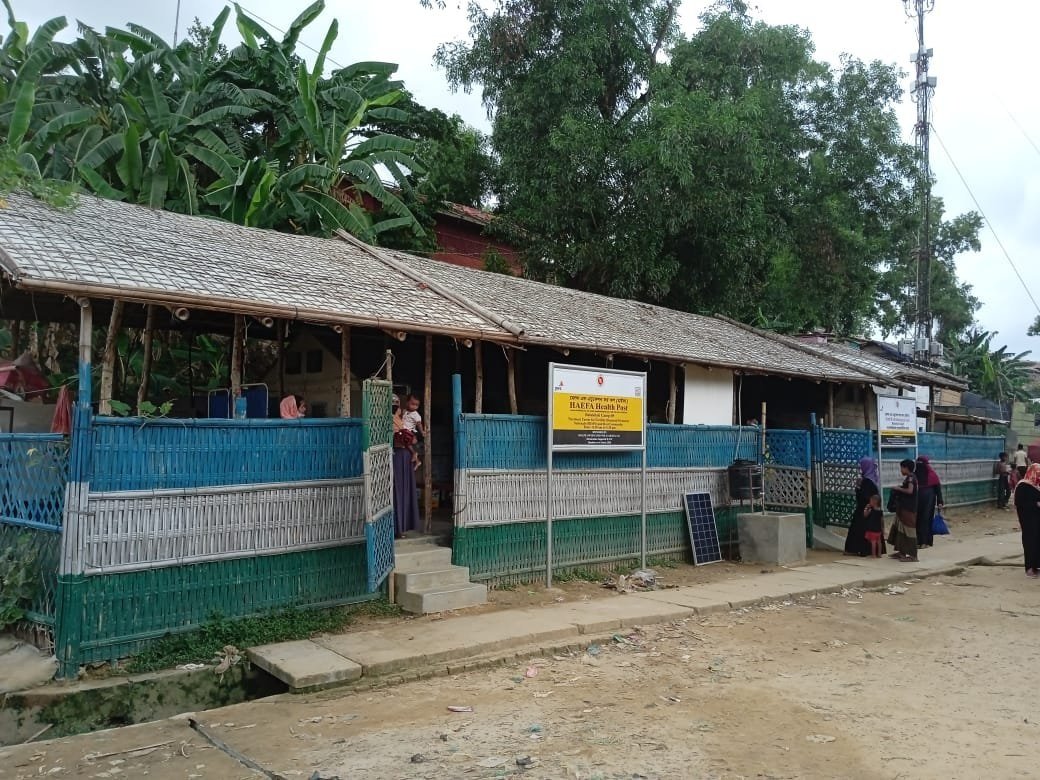
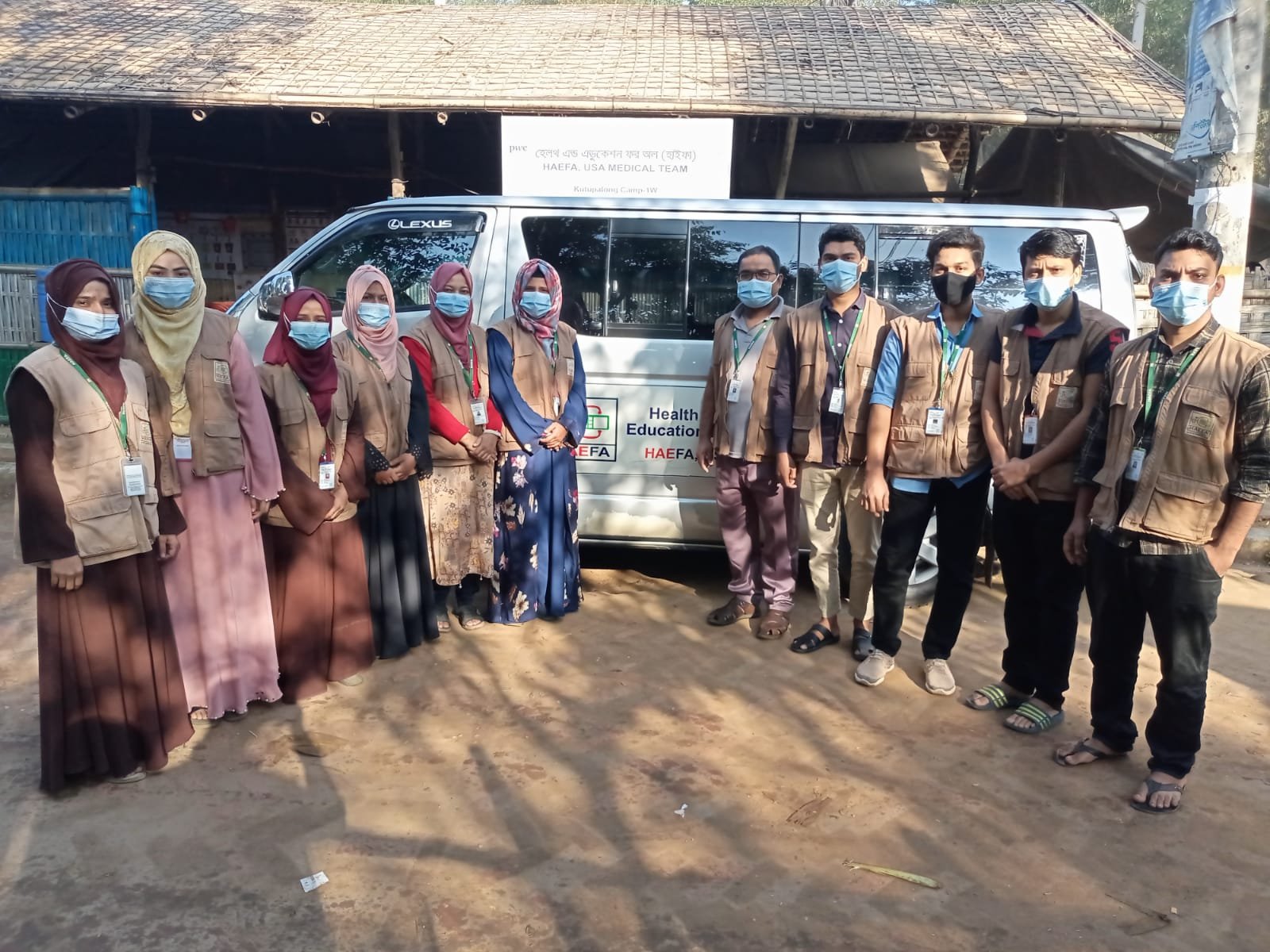
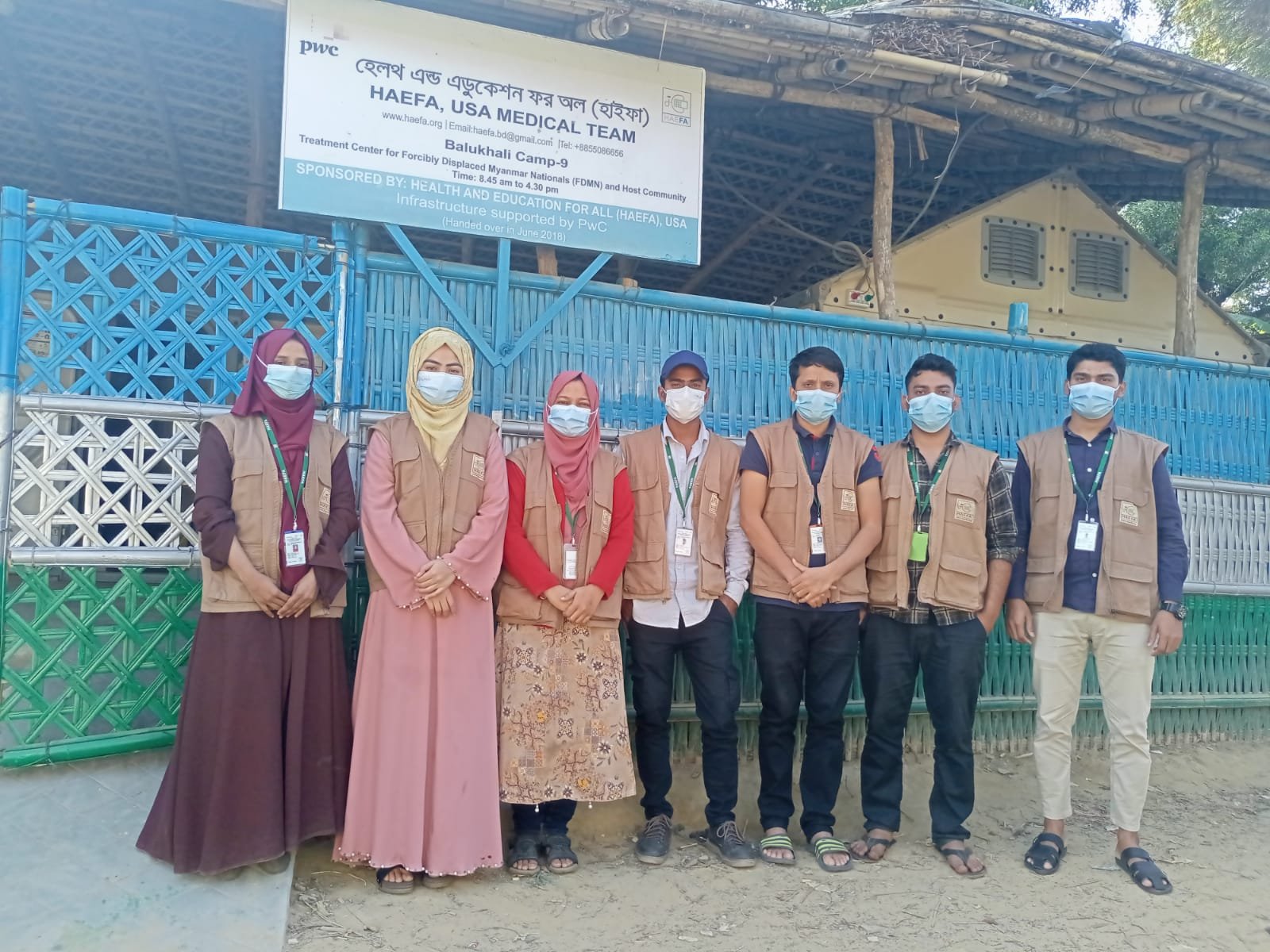
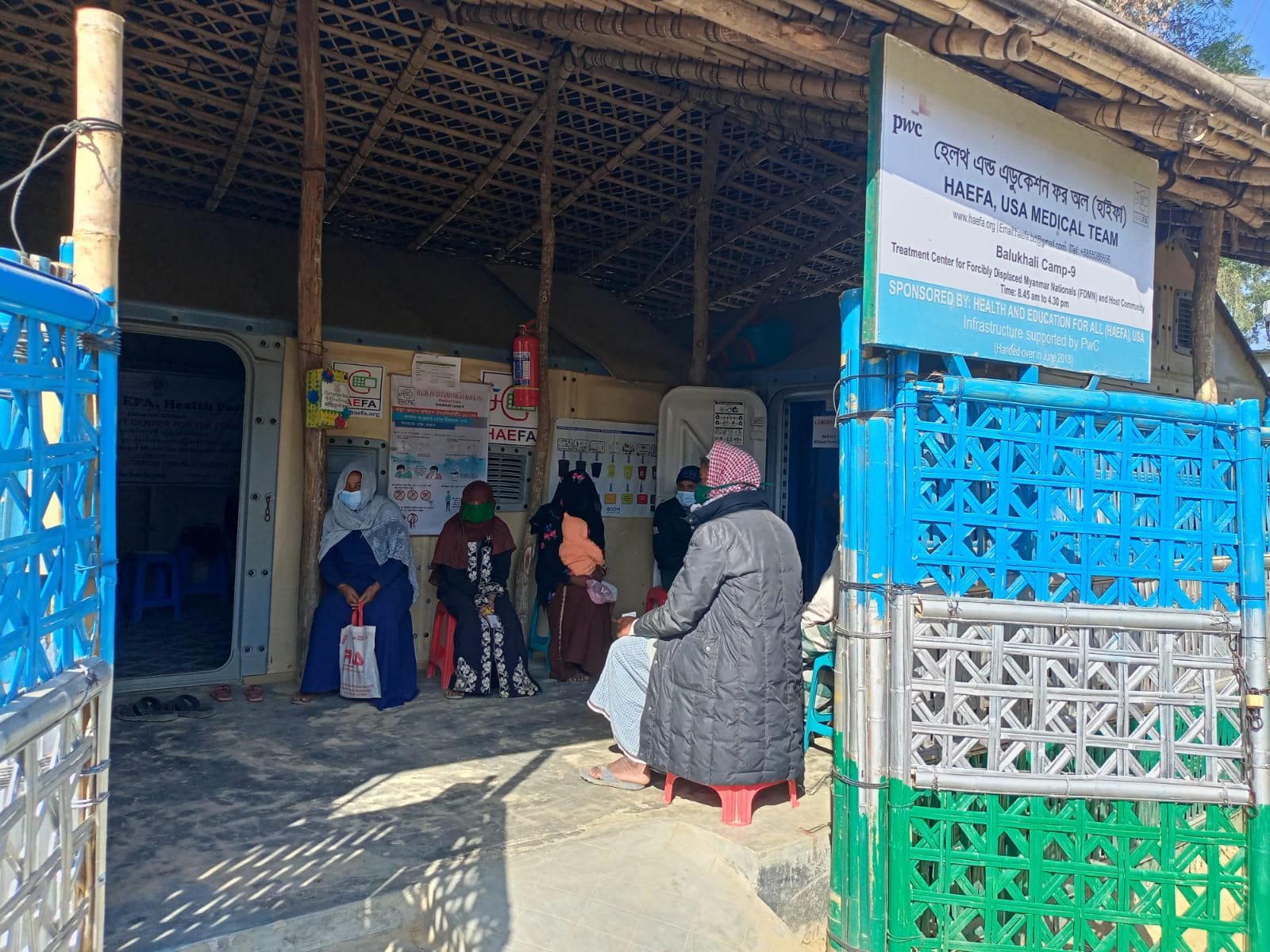
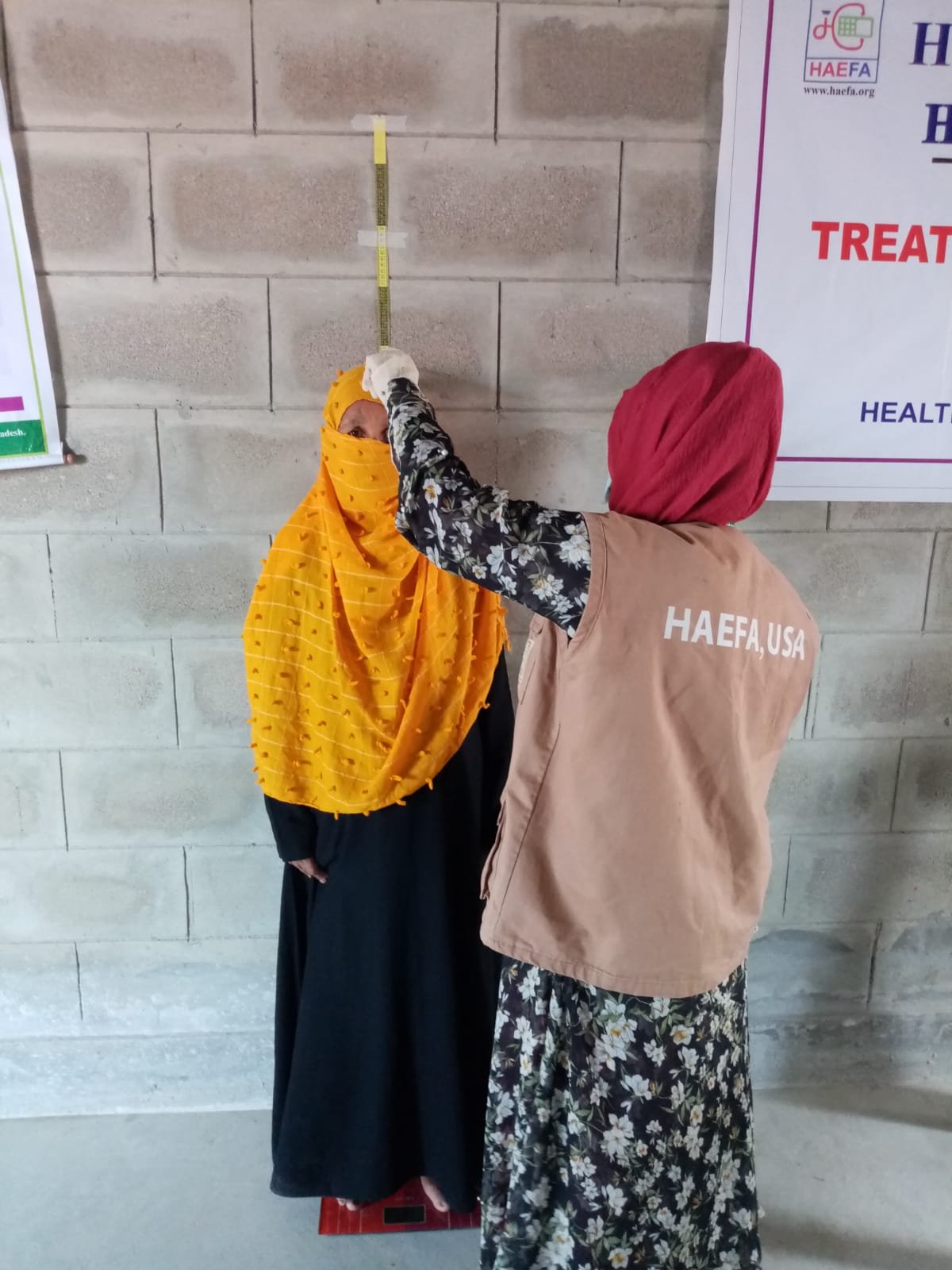
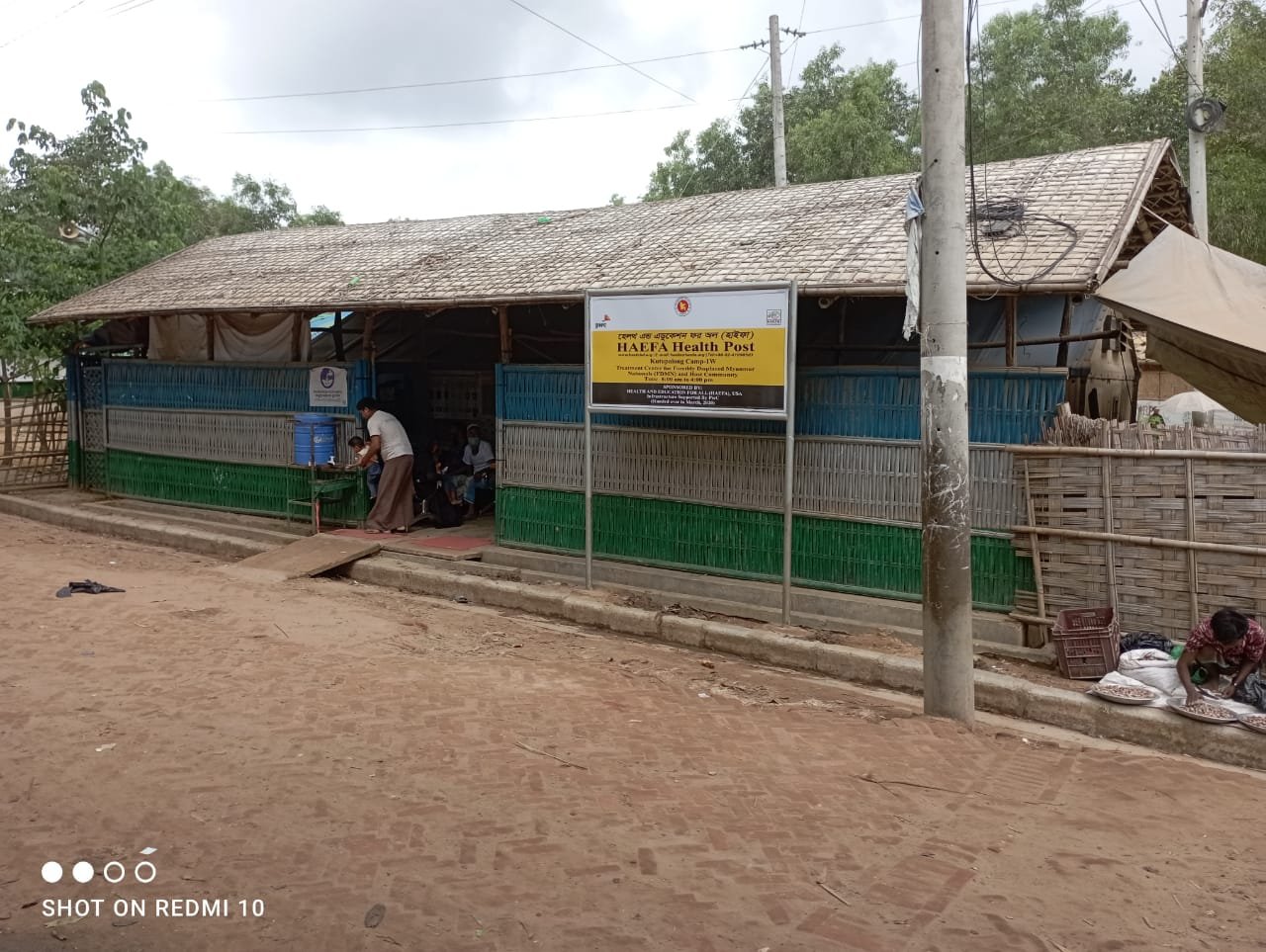
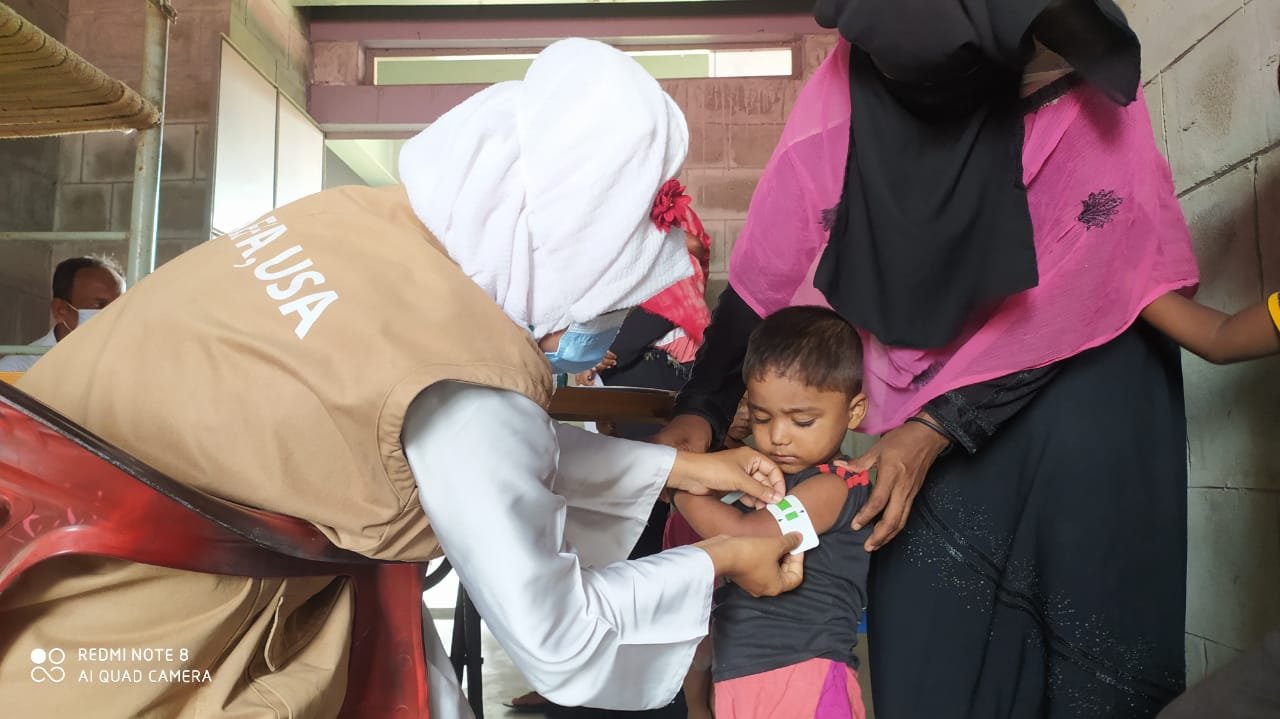
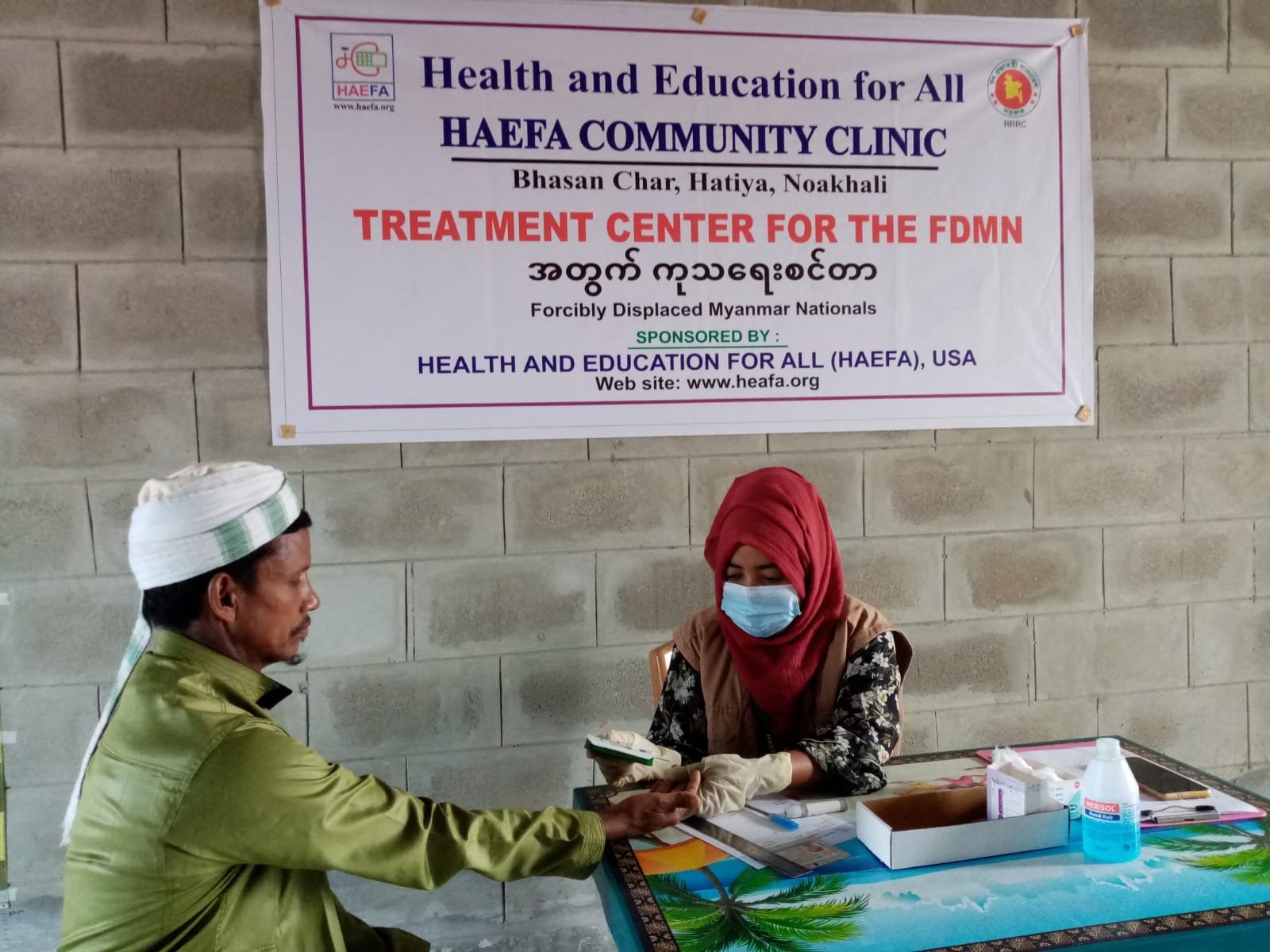
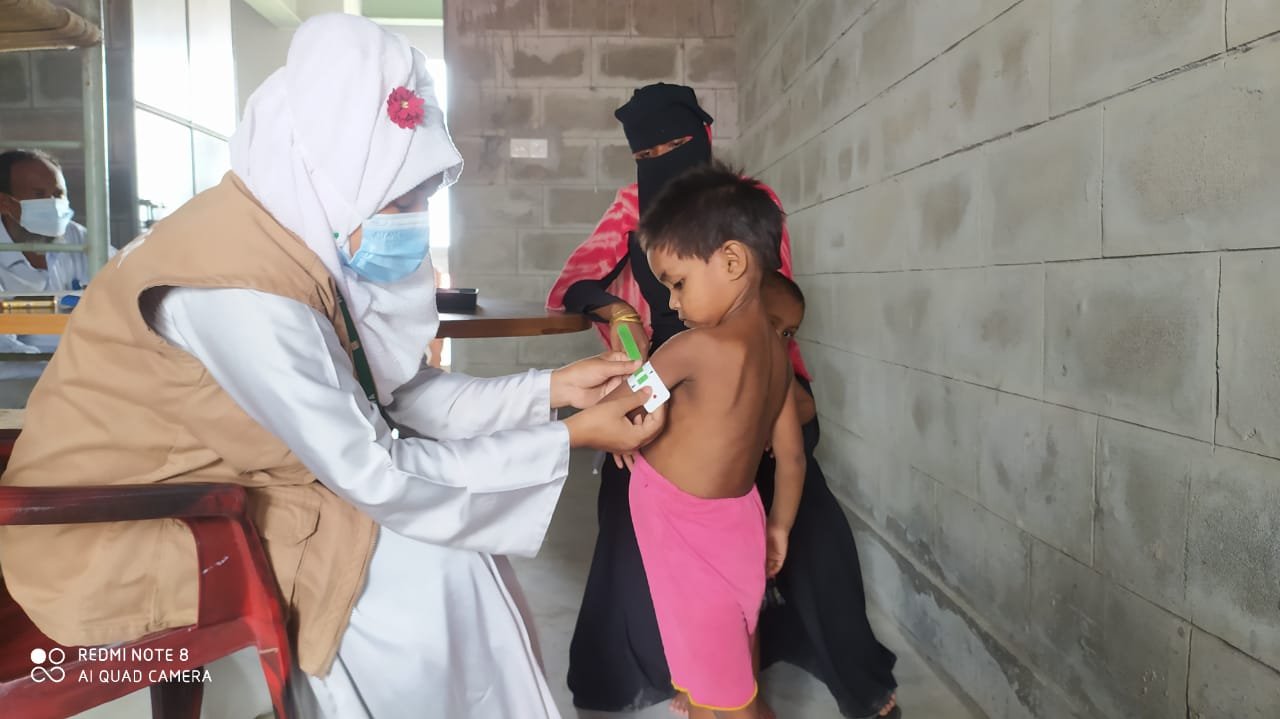
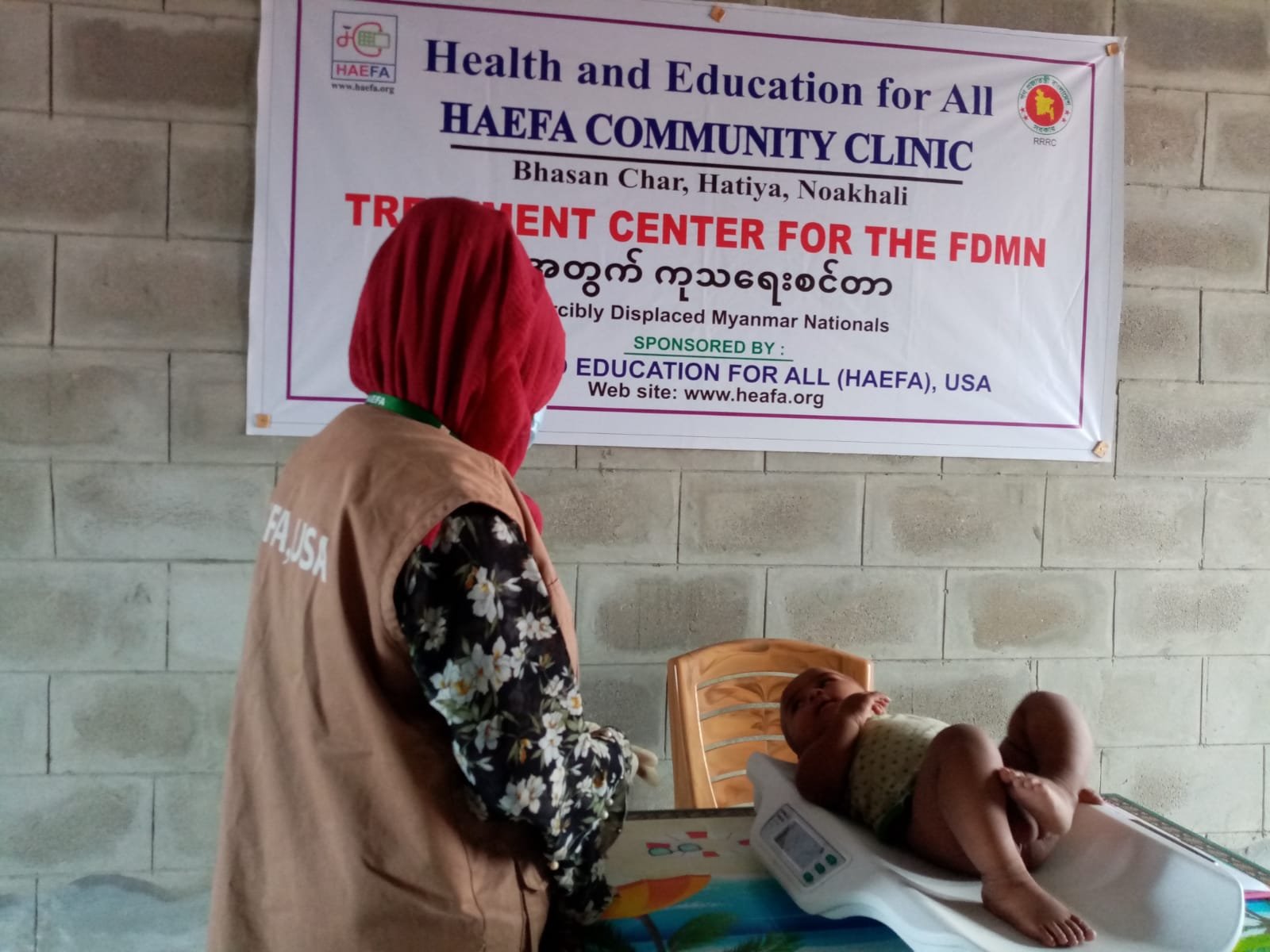
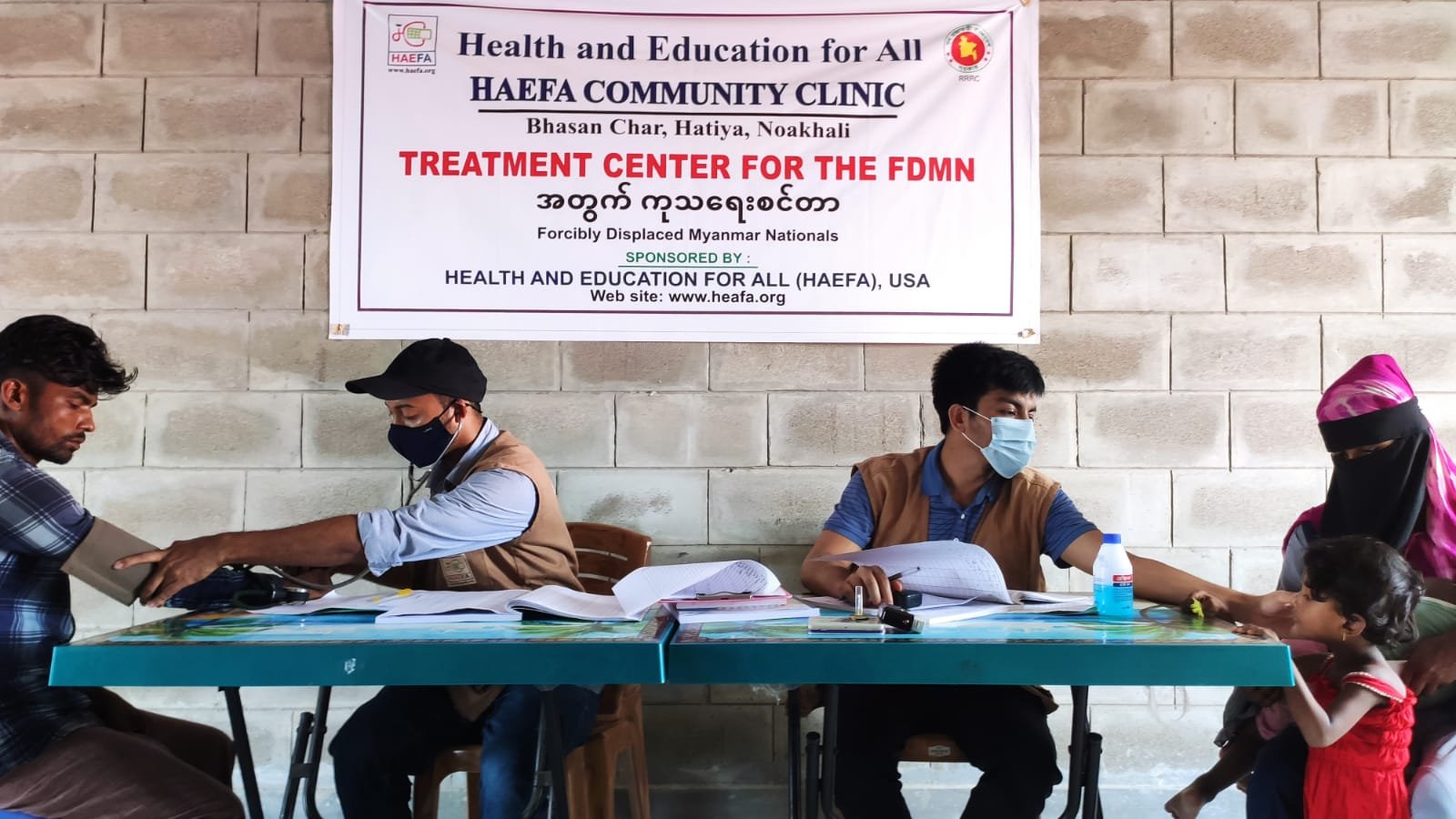
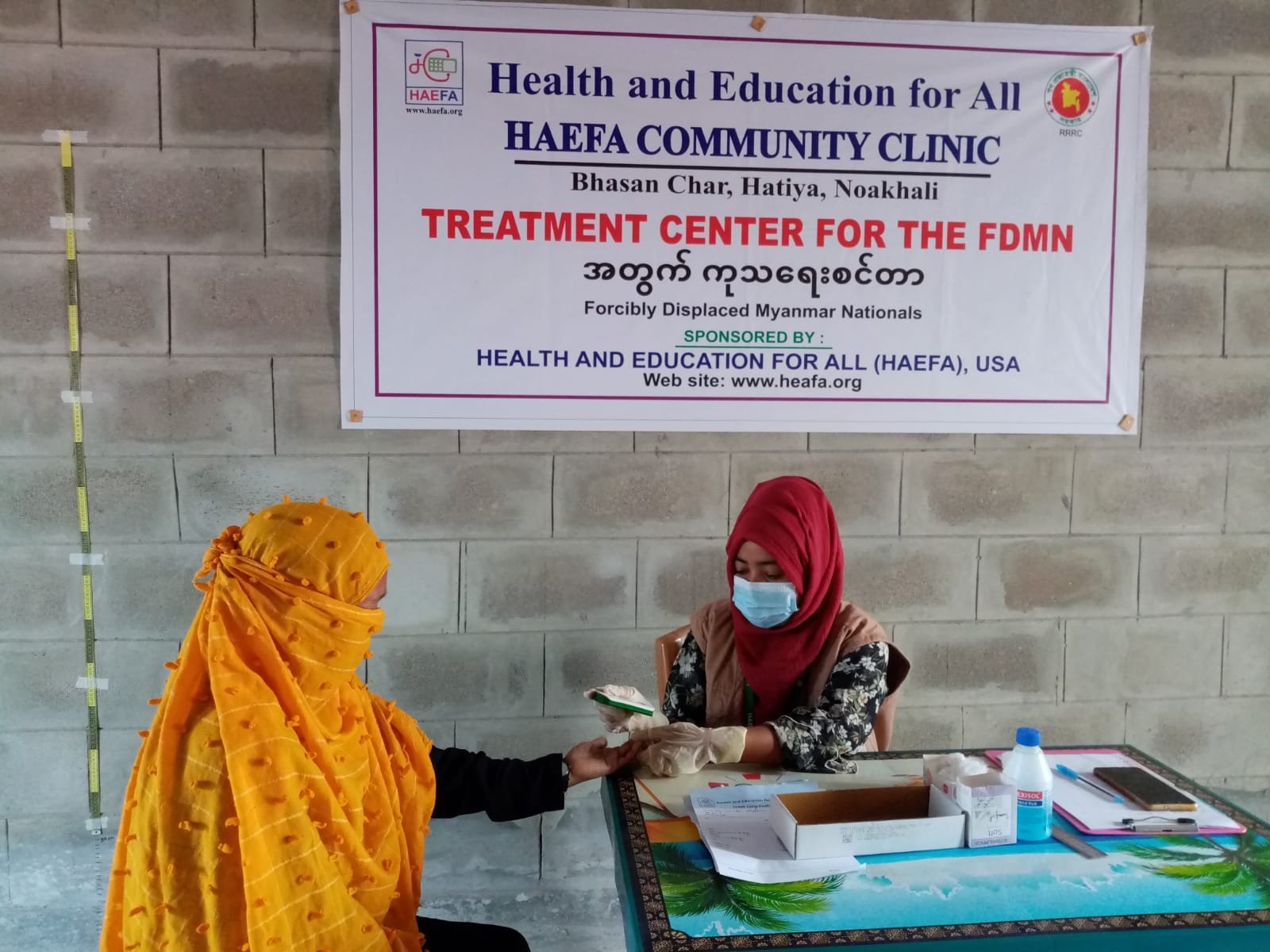
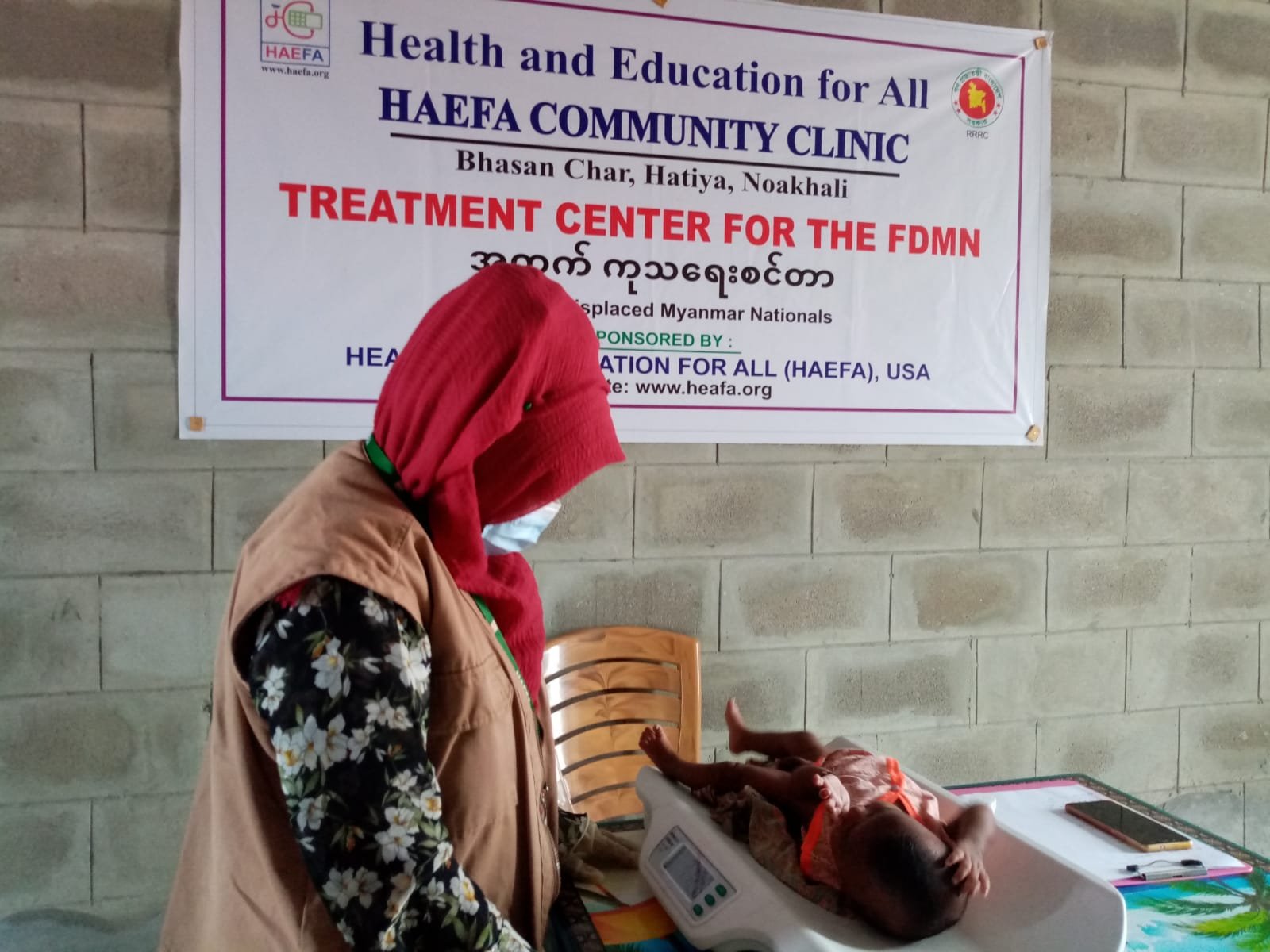
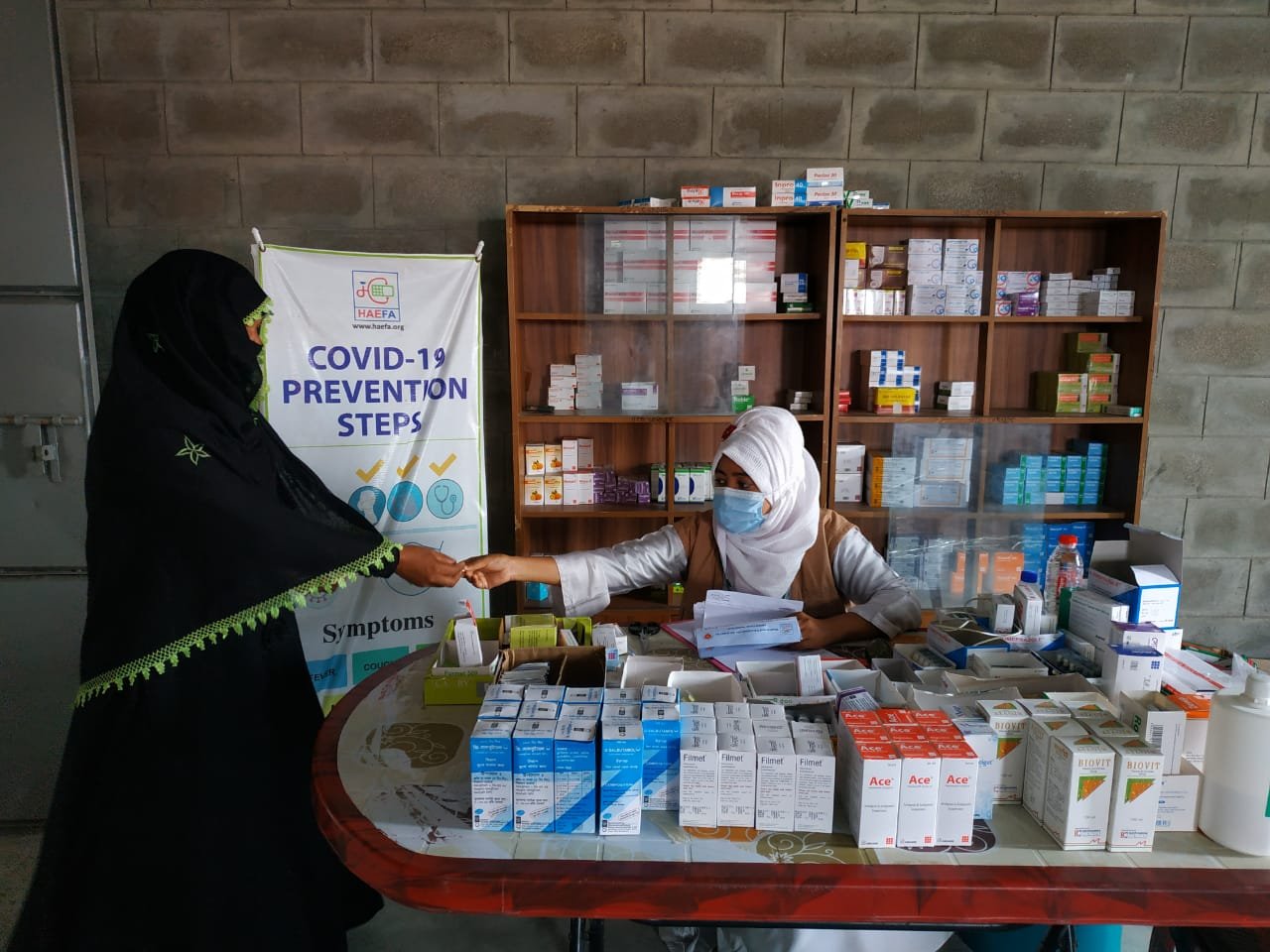
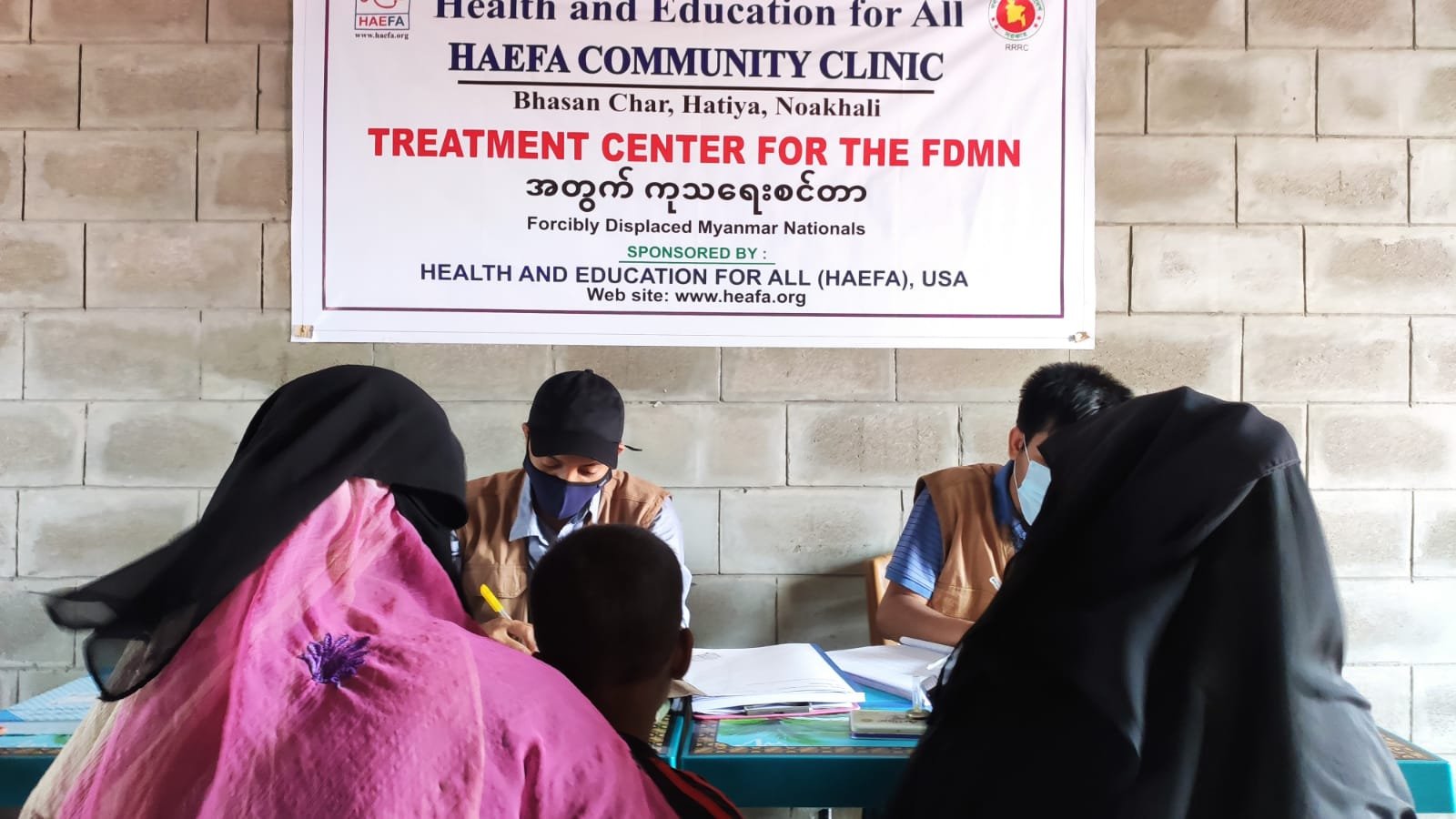
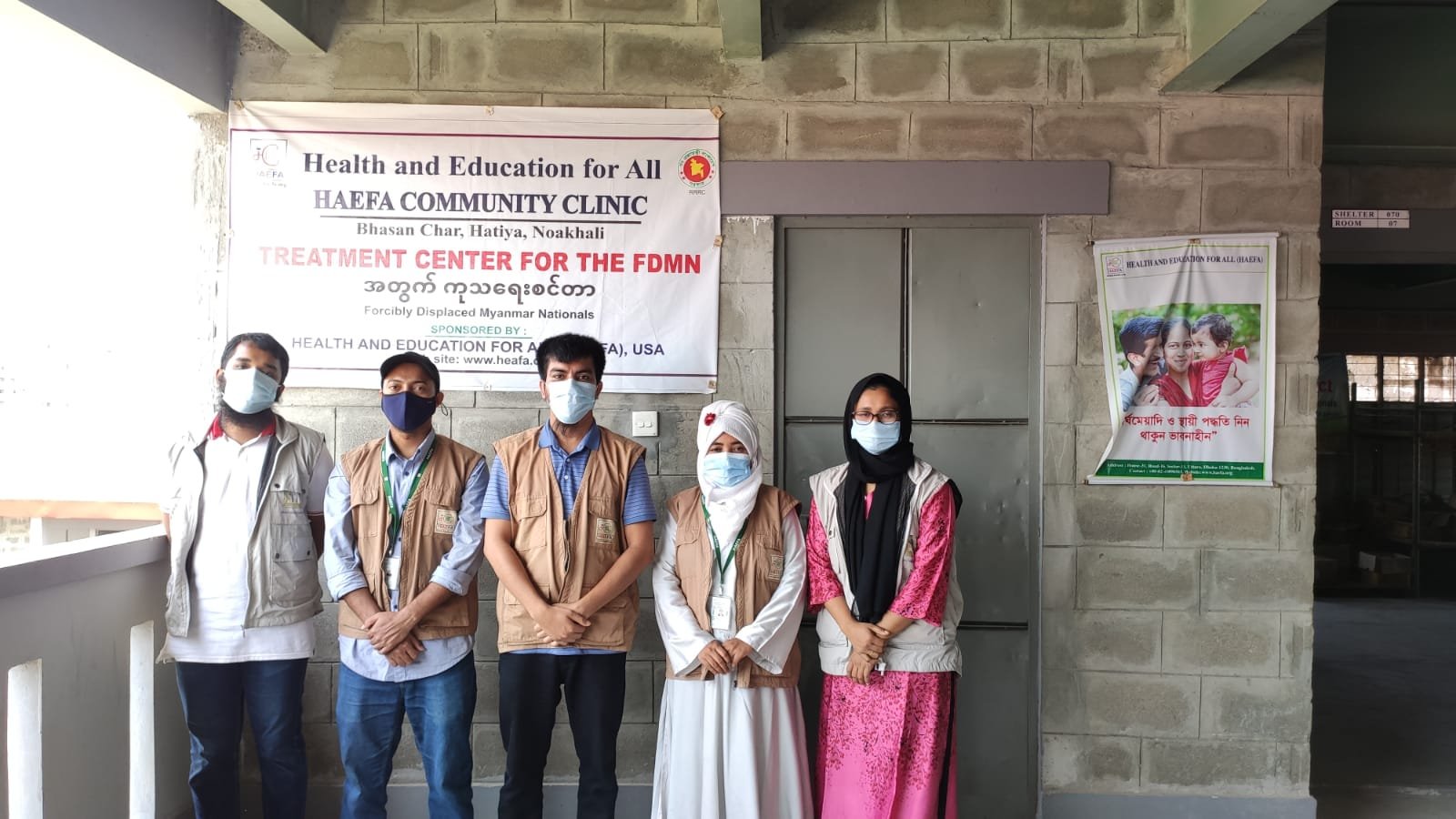
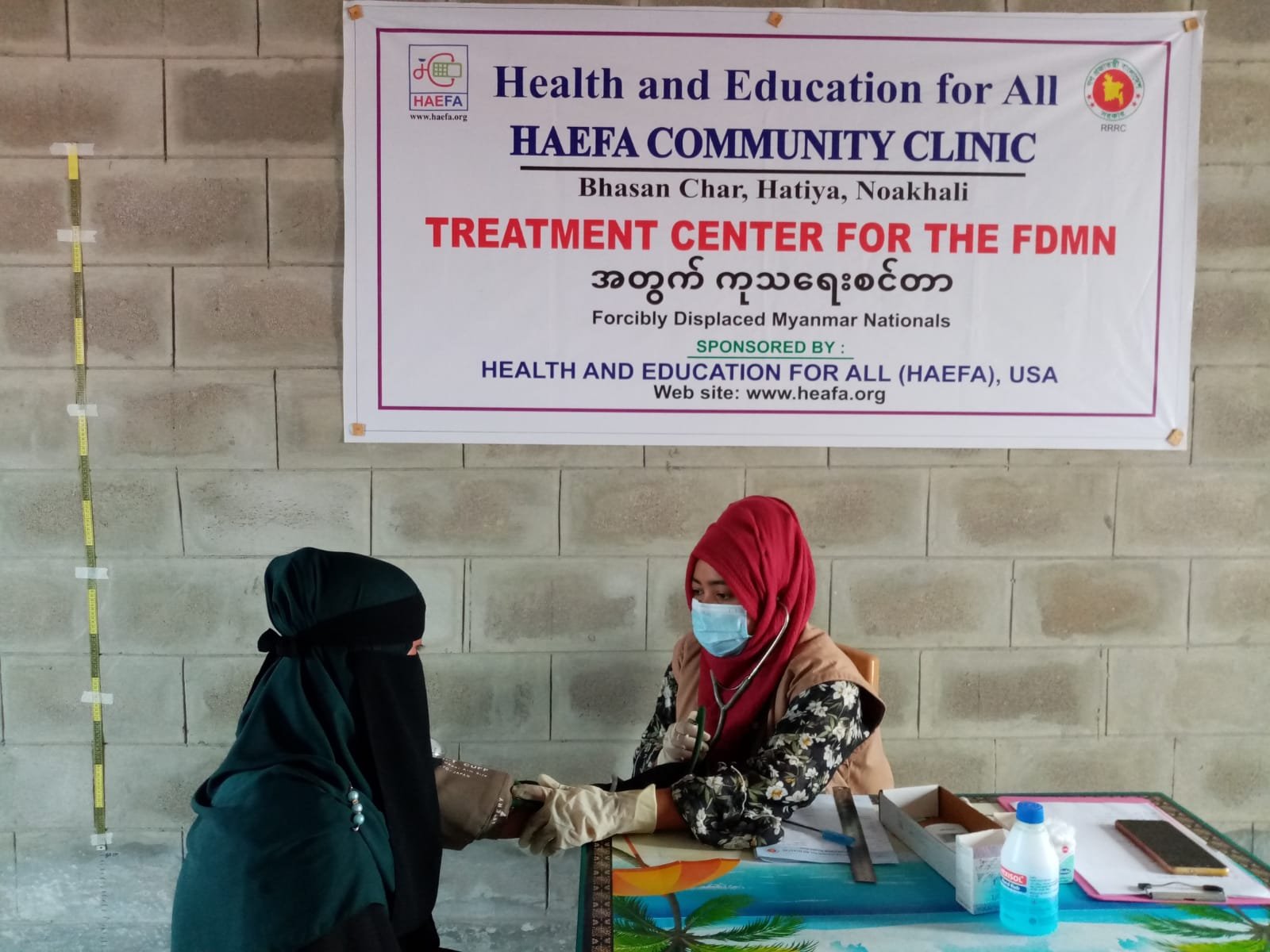
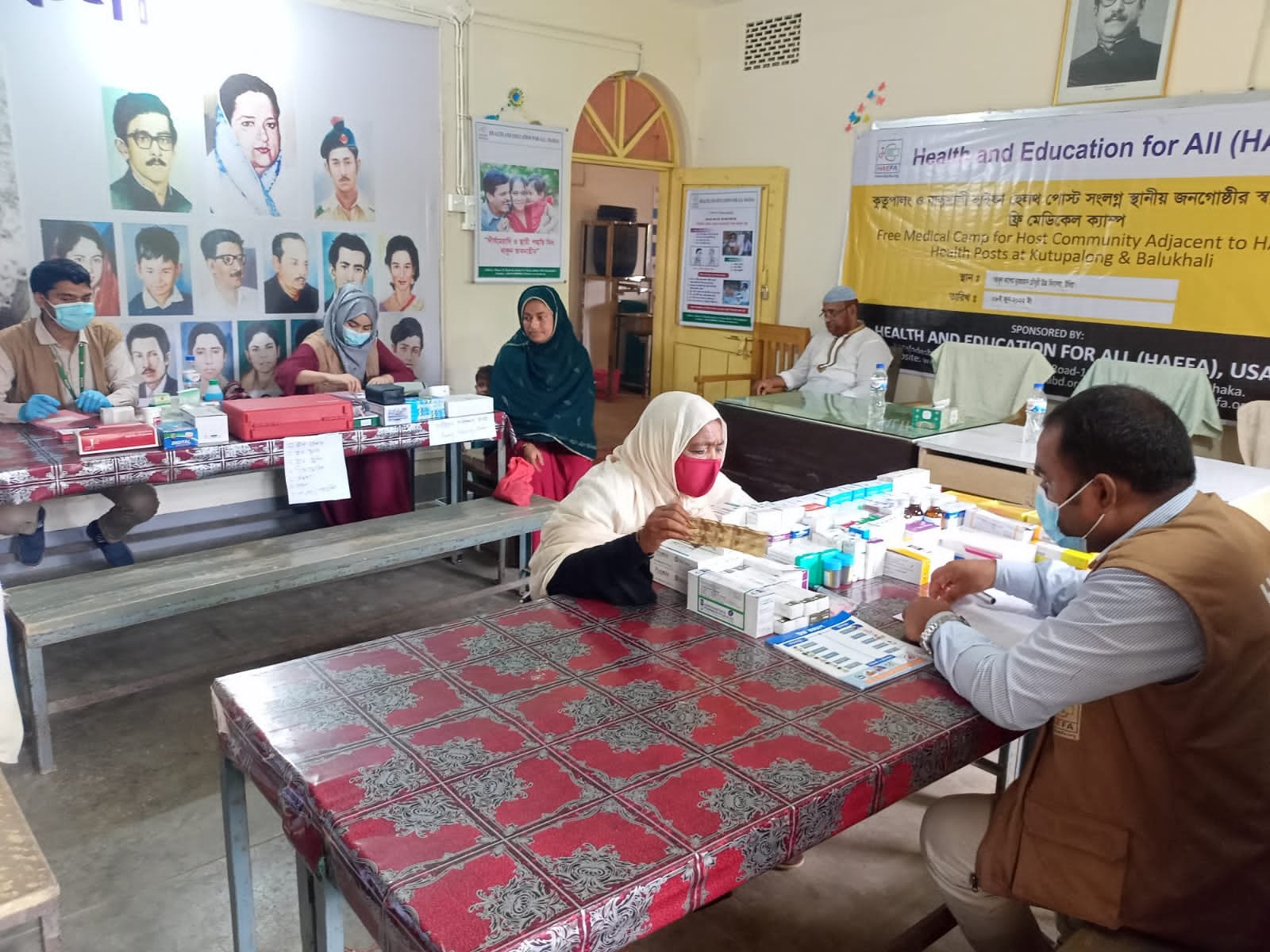
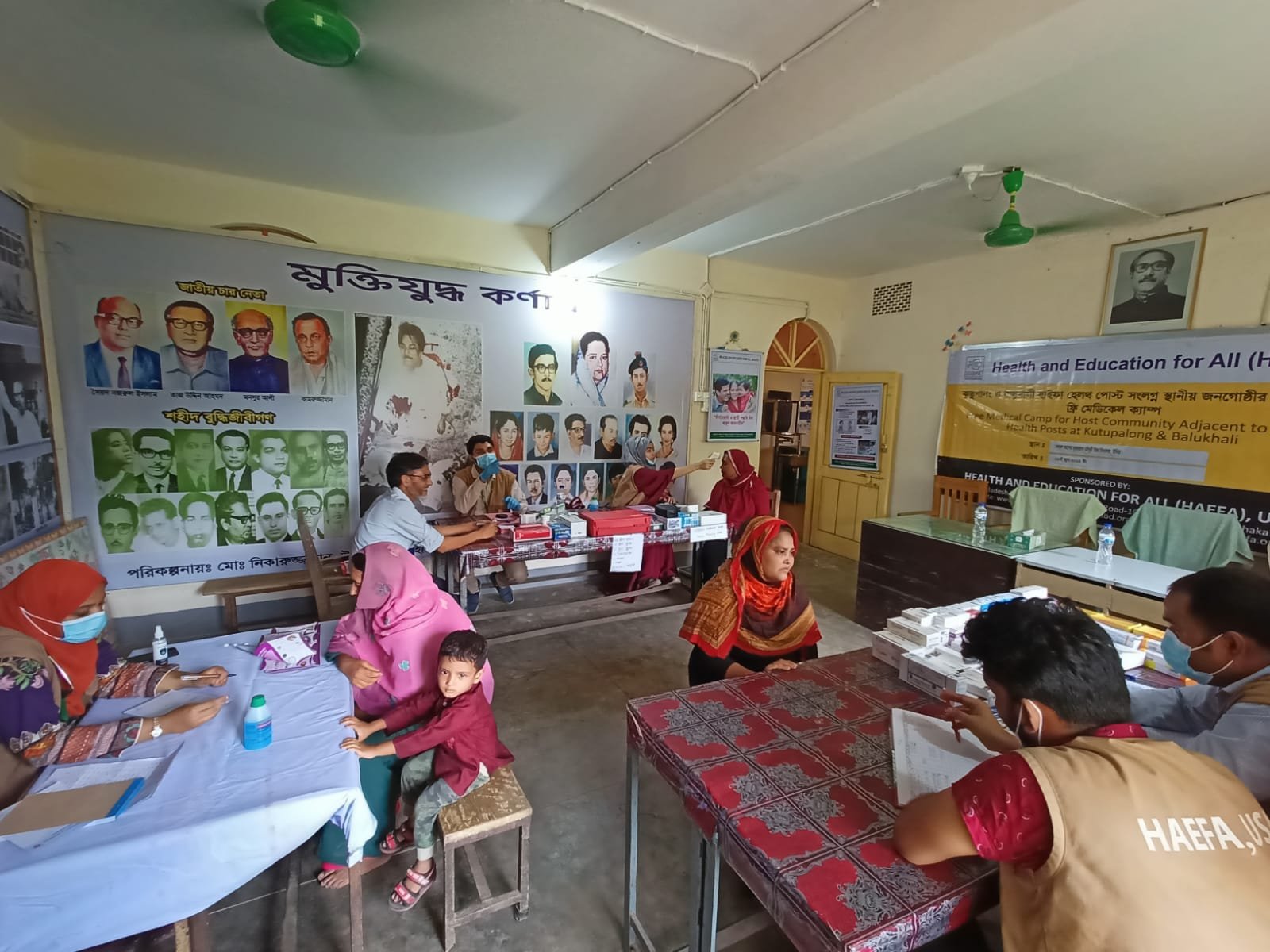
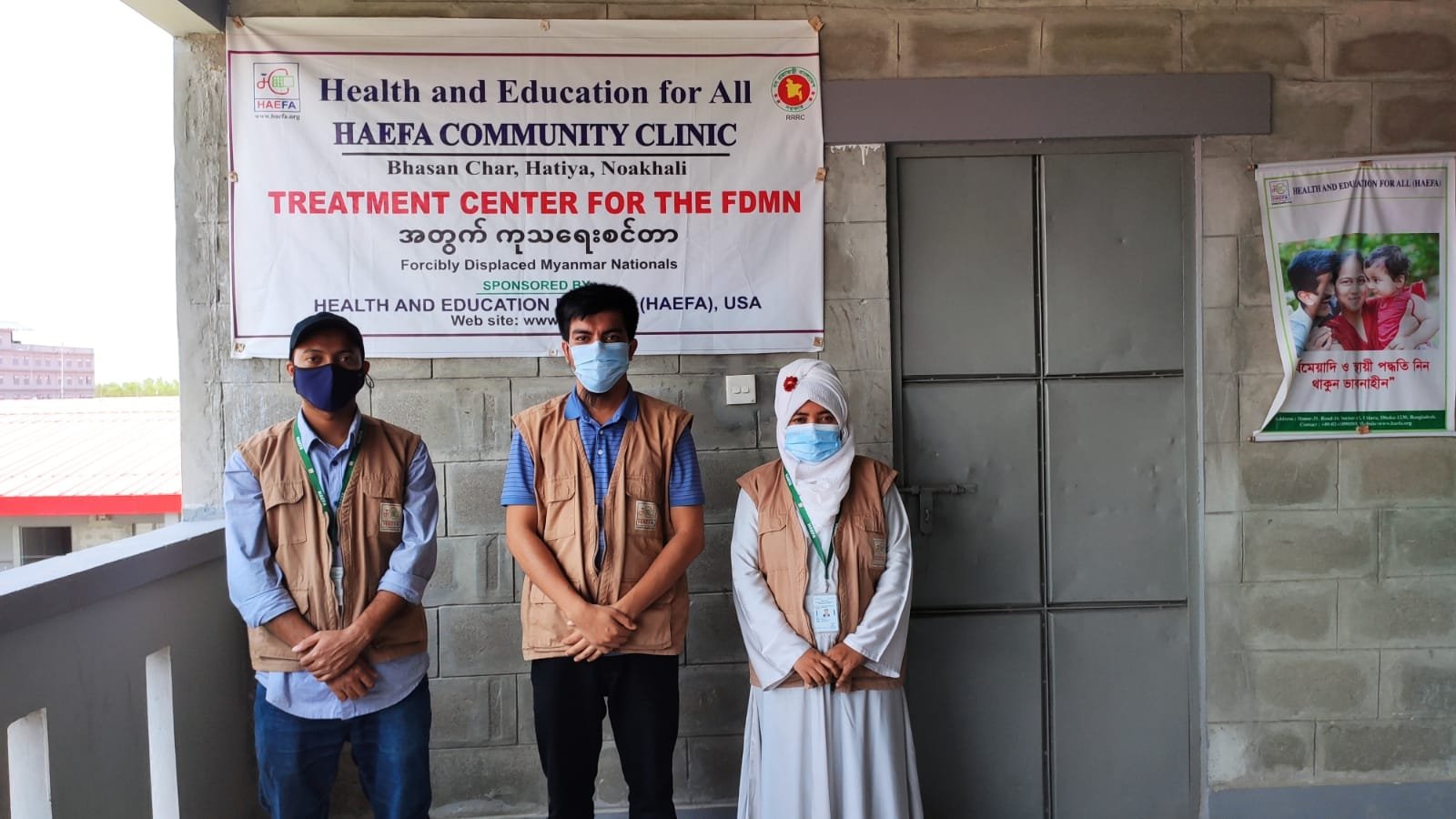
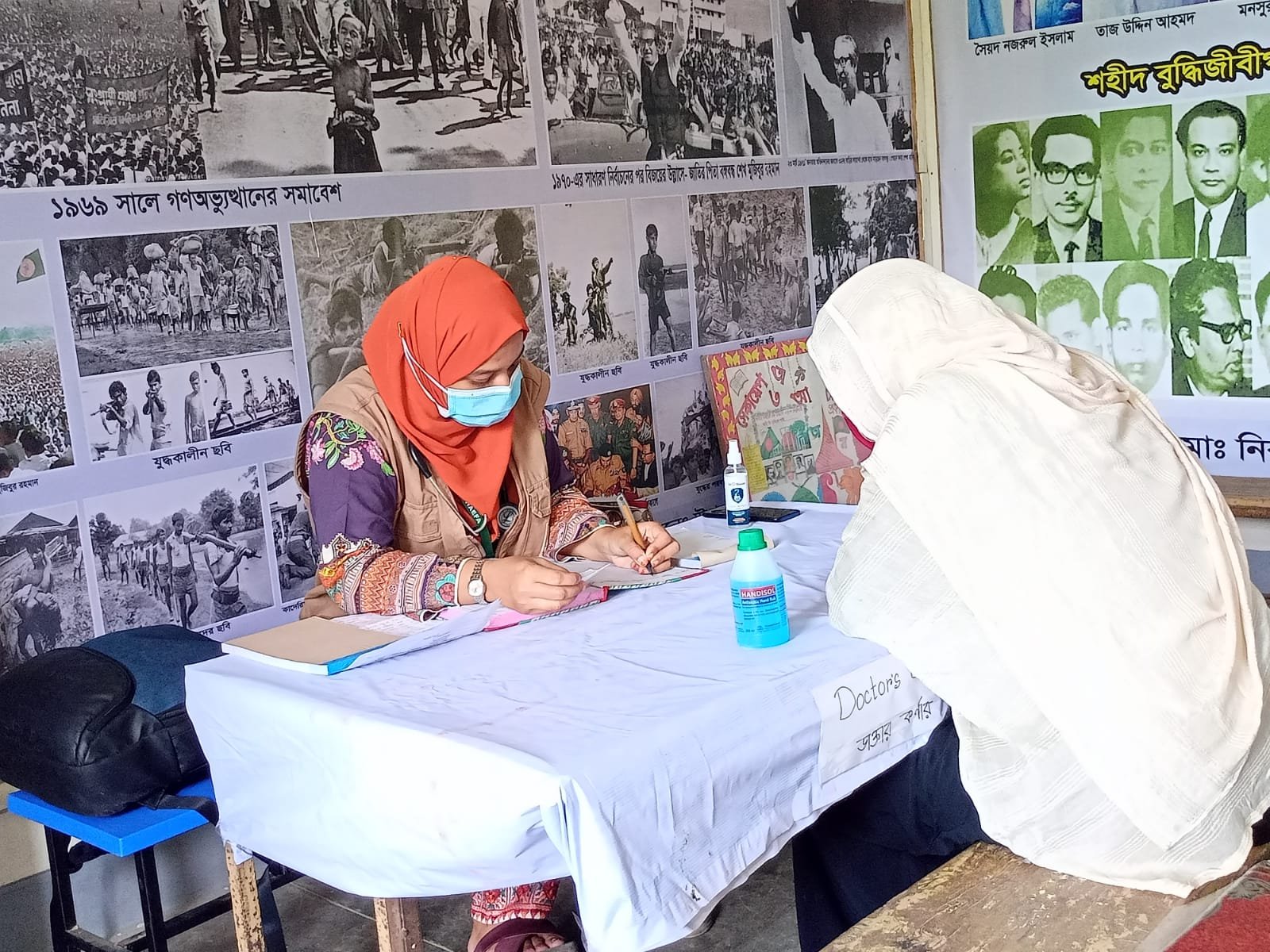
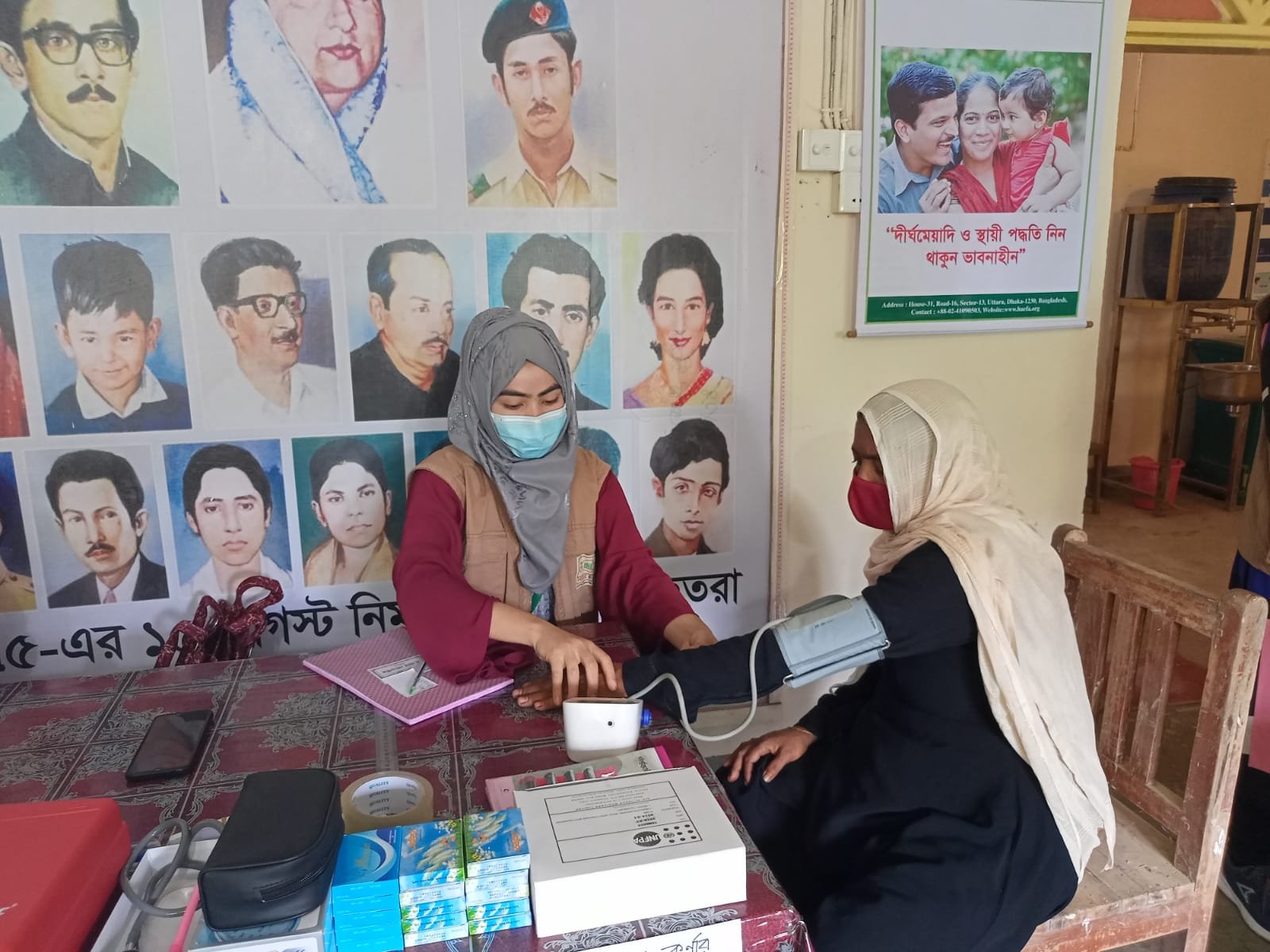
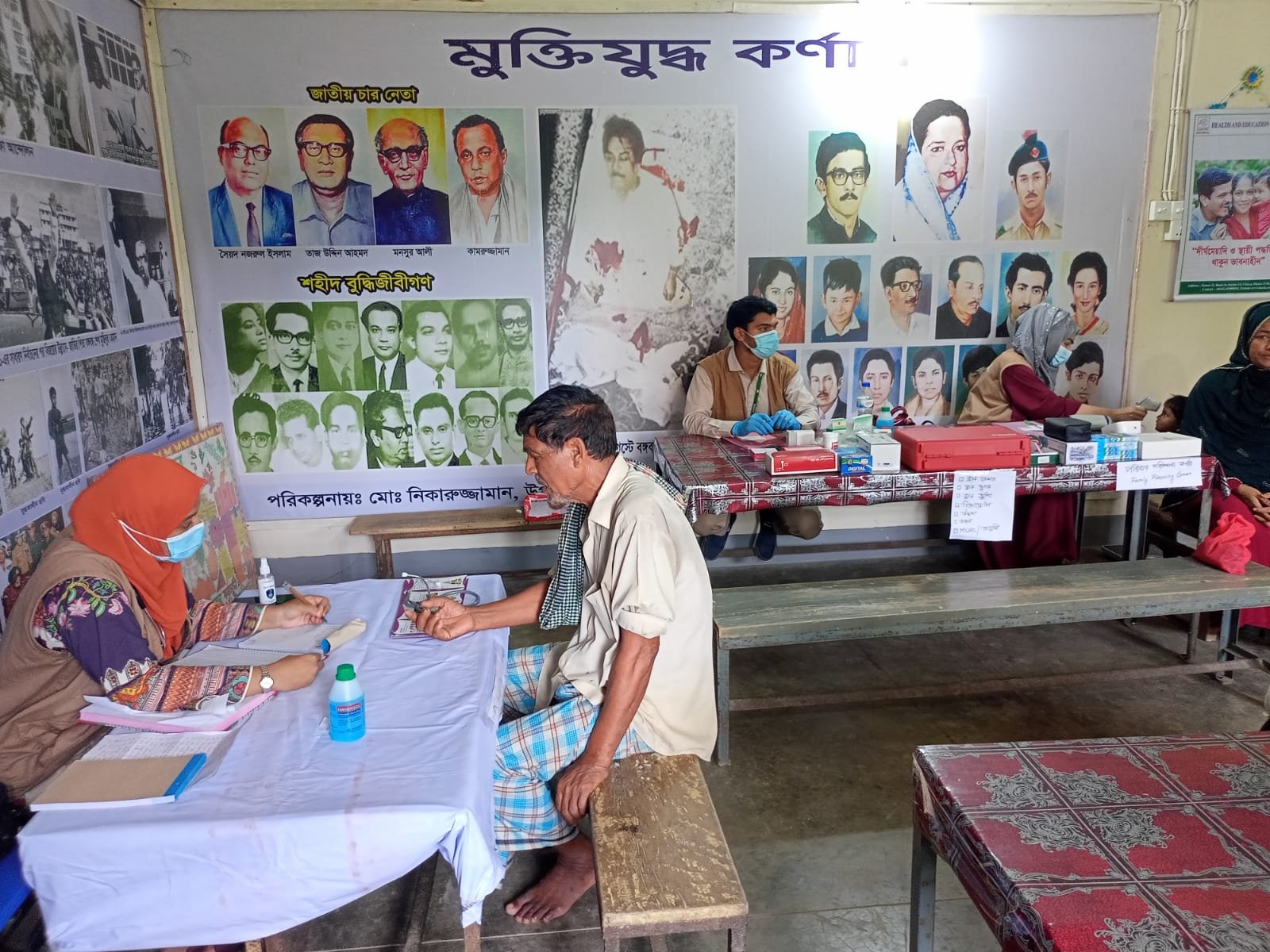
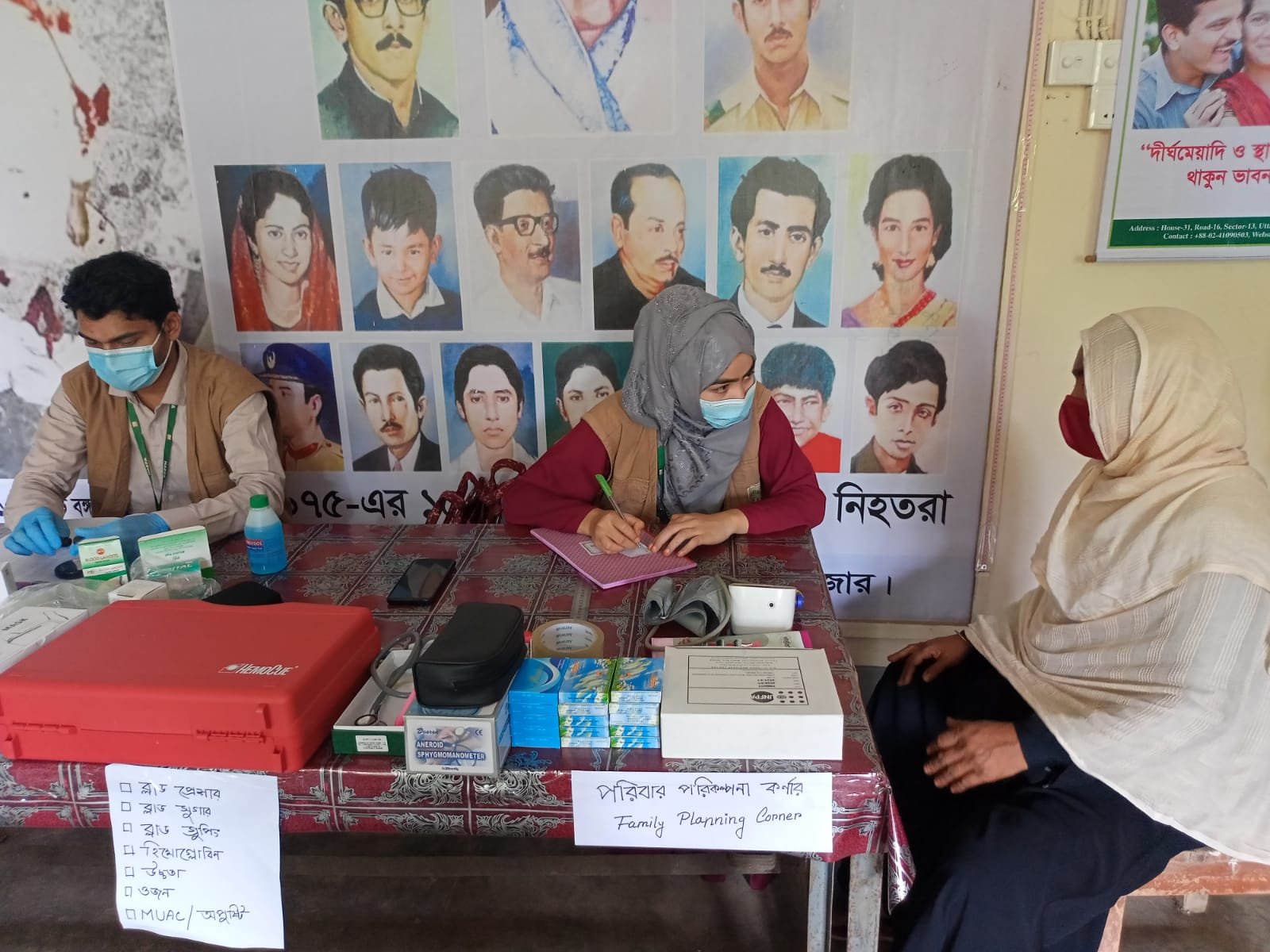
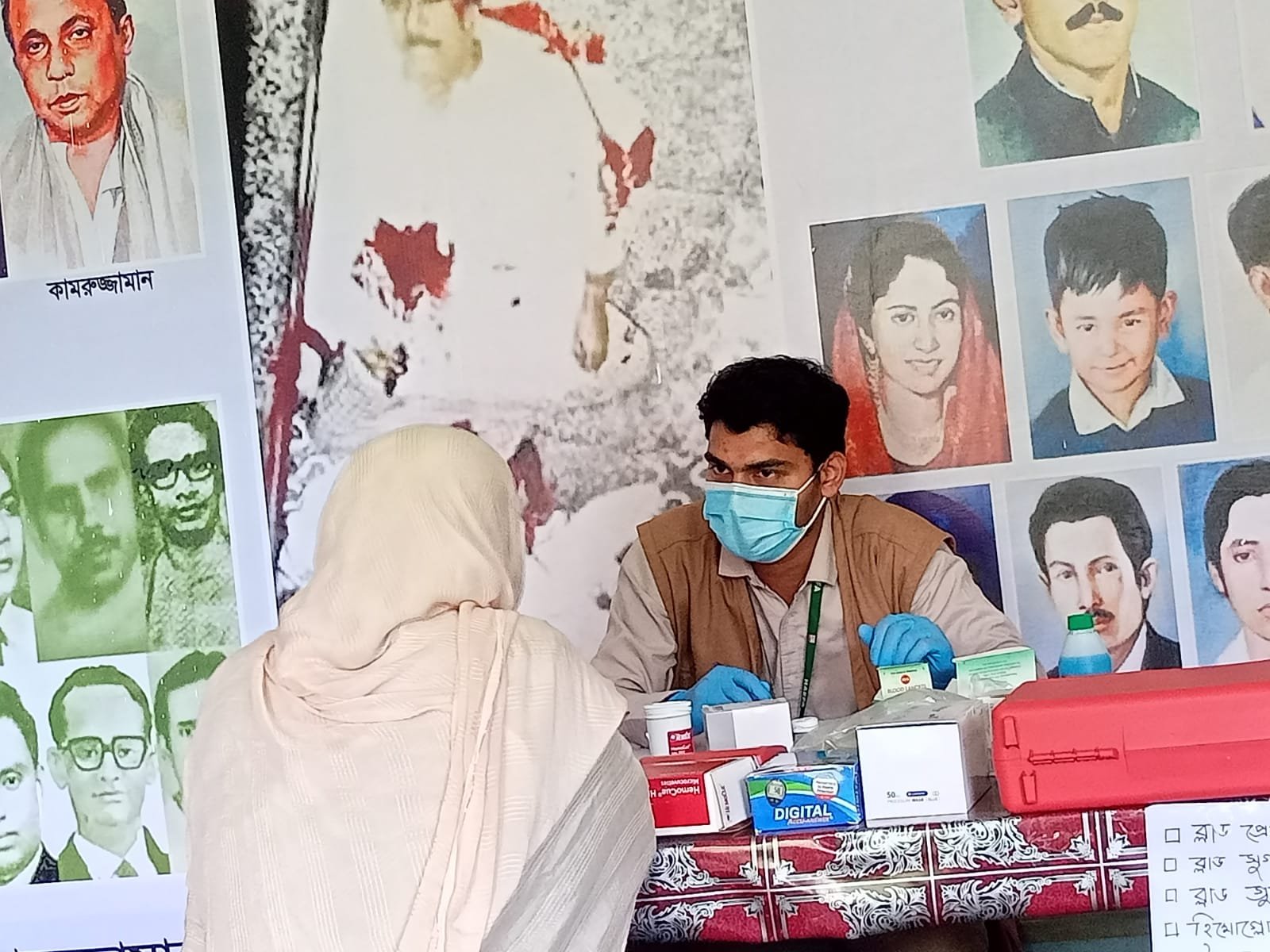
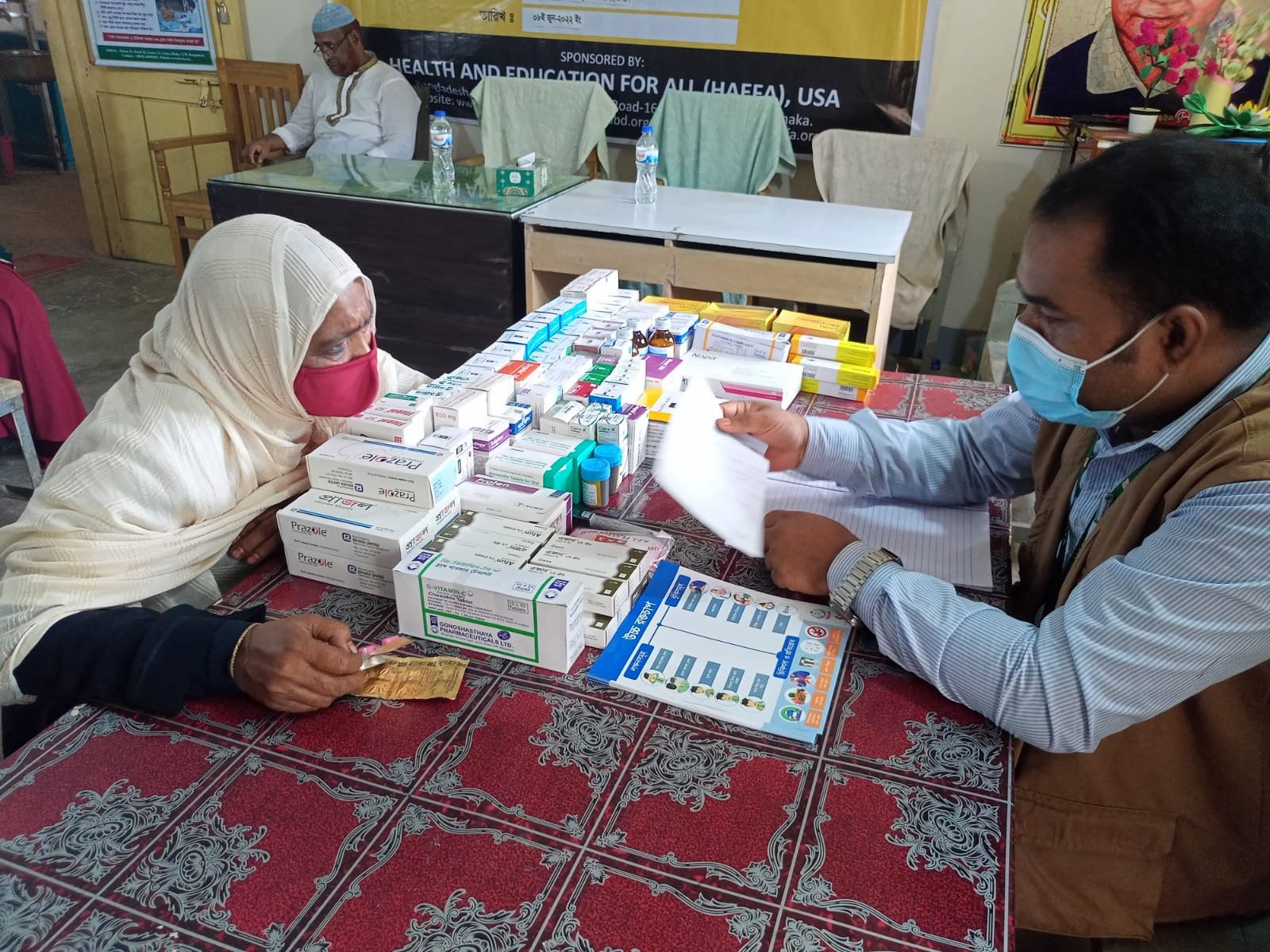
Read More from our blog
Last updated 5/20/2023
